#there are so many more examples from the women in the sex industry who defend it in my notes alone
Explore tagged Tumblr posts
Text
i had a friend who was raped as a teenager and had a really strict mum who did not let her go out so she was really lonely. when she turned 18 she started going clubbing and since we live in a city with a big fetish scene, she started going to the kinky venue. since she was young, naive and very pretty, she was immediately roped in by older men who did bondage shootings with her and everything. she started working in the club. to me, she was clearly groomed, but she works in a fetish shop now and is fully immersed in the scene
i have a friend who answered a job ad for a secretary when she was abroad and she and her friend ran out of money but when they arrived there it was a brothel. they both prostituted themselves for several months. they were only 18. she still talks highly of that brothel, how clean and safe it was, and wants prostitution to be legal
i read the gut wrenching biography of a thai woman who ran away from home, whose parents refused her education and treated her brother very preferably while openly hating her, and entered prostitution in sex tourist destination pattaya at only 13. she was paid by men in their 50s first for her virginity, then to piss on her. she exited at 19 and developed psychosis. she defends sex buyers, hates feminists and wants prostitution to be legal
do you see where im going with this? brainwashing is real. despite the obvious facts, the grooming, the system that pushed and pulled them, the men taking advantage of them; they defend it. so yeah, we shouldnt dismiss firsthand testimony and personal experience, but always take it with a grain of salt, always contextualise, always see it as one part of a bigger picture. liberals dont do that and have duped too many people into not doing it either. „if thats her choice its none of our business“ fuck you!
#there are so many more examples from the women in the sex industry who defend it in my notes alone#mine#there were and are women who dont want women to have the right to education to vote to work etc#even if it was denied to them as well#the thing is no group is a monolith and you cant just say ‚listen to x group‘ because#there will be differences within x group so you need to form your own opinion#based on all the information you can geg
1K notes
·
View notes
Note
why is headless women art bad? i can see why it's seen as objectifying but why is it such a big deal to make art out of the female form? (sorry if i sound agressive this is a genuine question)
Hi anon! You certainly don’t sound aggressive - I’m actually very grateful for the opportunity to collate my current thoughts in one place, so thank you for the prompt. I’m going to try my hardest to keep this short.
For any women who haven’t seen posts on this topic previously, some examples of the ‘headless women art’ trend I’ve been talking about for a while now are below. They’re often missing their limbs, at various points of amputation, as well as all or part of their heads (if she has her eyes, I generally don’t count it). Sometimes their heads have been ‘replaced’ with other objects, typically plants or mushrooms, though I wouldn’t count a woman with an animal or bird’s head. They’re often naked.
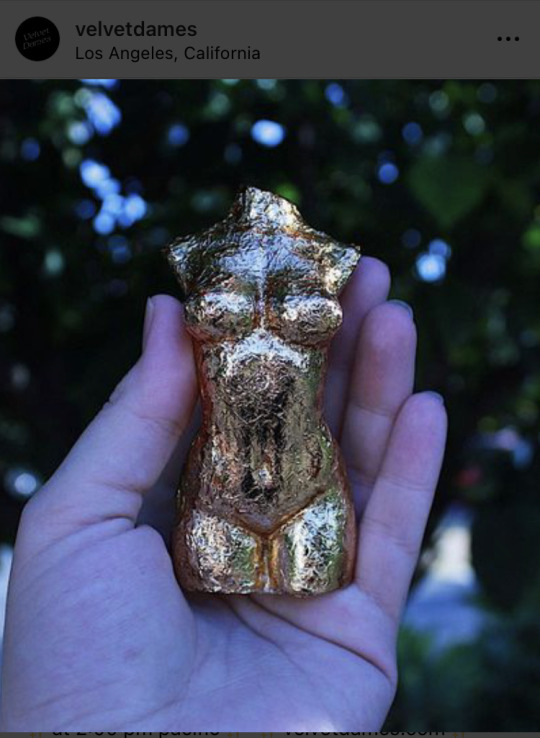
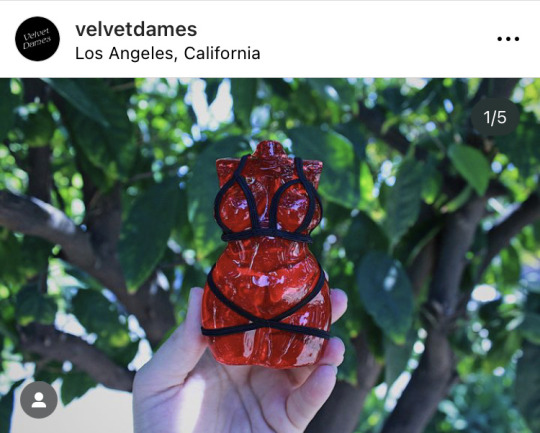
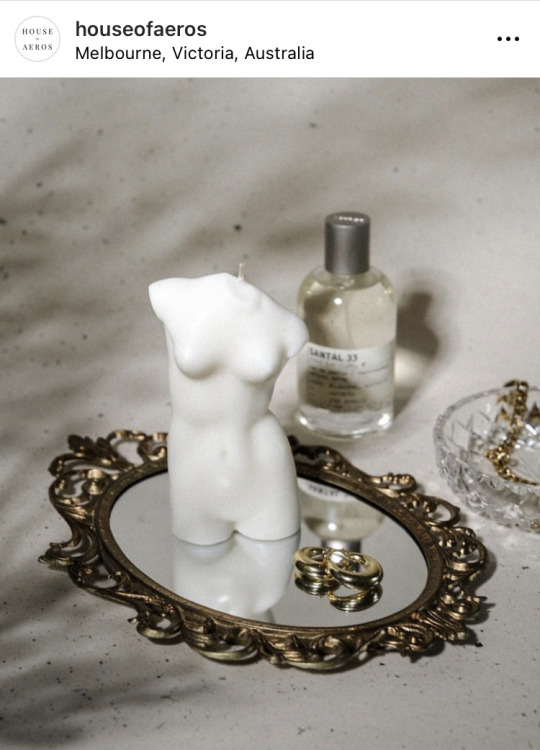
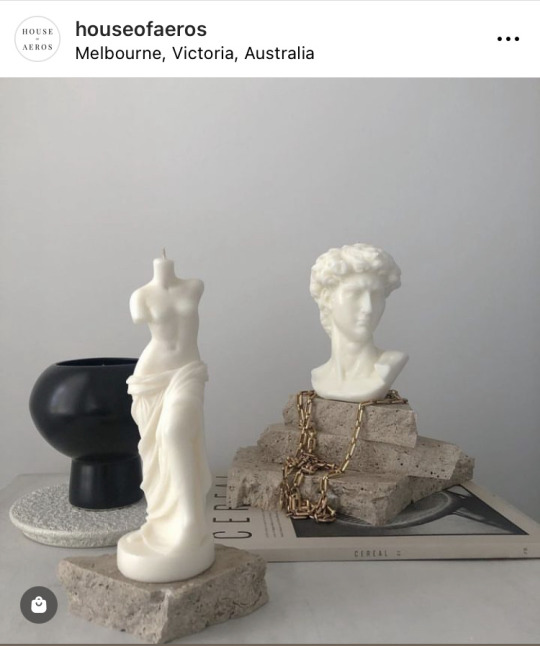
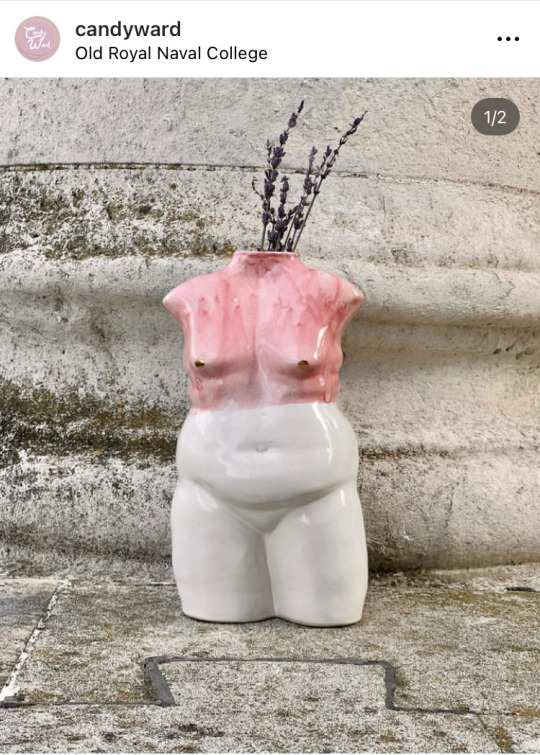
So, per Anon’s question, why is it a ‘big deal’?
I mean, really, it’s not. It’s an absolutely minuscule deal - it’s as dwarfed by the issues of the sex industry, femicide, and systemic sex inequality, as we are by the Sun. And yet, much as our bodies are made of particles formed in dying stars, I see elements of the large within the small… ok, I’m not getting poetic.
It’s not a big deal, and I don’t necessarily think it’s wholly terrible either, which is why in my analysis posts on the topic I try to ask questions more than criticise, and criticise gently when I do so. What it comes down to is that I spotted a pattern, and wanted to acknowledge that pattern, think about it, and ask other women for their thoughts on it.
With that said, there are certain things that I question particularly, and have seen other women question, which I’ll list:
Remove her legs and she can’t run, remove her arms and she can’t fight, remove her mouth and she can’t shout, and remove her eyes and she can’t look back at you. You totally disempower her when you remove almost every body part capable of action.
By removing her head you also remove her brain (her personality and internal identity), and her face (her visible external identity). By anonymising her you strip her of her individuality, and depict all female people as a result - so what message are you sending about all female people with your depiction of us, naked and dismembered?
A (living) woman’s neutral existence requires her to have her head. By removing it, you are making an active choice to step away from the neutral (and it’s on you to defend that choice), and you are also by necessity depicting a dead woman. You ask about ‘art out of the female form’ - the living female form has a head. Why remove it?
The simplest test of whether something might be sexist, is to see whether it applies to men and women equally. Are (straight) men decorating their homes with ‘bits’ of male bodies? Do men in general feel conscious enough of, yet alienated enough from, the appearance of their bodies that they seek out their representation, sans heads, to reflect back at them? Why not, if women are? Would it be strange if they did?
As a follow up, since many of these pieces are made by women (often straight women), are (straight) men often focusing their artistic output on depicting ‘bits’ of male bodies? Do men regularly choose to create art intended to depict the ‘beauty’ of the male form? If not, why not?
You mention objectification - what links are there between objectification and violence? Could self-objectification be used to normalise violence against the self, or even excuse it? What about violence against others who are like the self (ie violence against other women)?
As I say, I’m not necessarily saying this artistic trend is exclusively a bad one, or that people/women in particular shouldn’t be decorating their homes however they please. It’s just something I’ve noted and found interesting, and like many apparently free choices, I think feminist women have a responsibility to interrogate their own and others’ motivations.
This is a hasty overview, and I’ve probably missed things - I’ll reblog with additions if I think of any, but you can also see my previous posts on this topic, and other women’s contributions, under my “Headless Women Art” tag. Thanks again for the question!
1K notes
·
View notes
Text
A police station in the historic sailors' quarter of the Belgian port of Antwerp is surrounded by sex workers' neon-lit red-light windows.
The station in the Villa Tinto complex is a symbol of the push to make sex work safer in Belgium, which boasts some of Europe's most liberal laws – although there are still widespread abuses and exploitation.
Since December, Belgium's sex workers can access legal protections and labour rights, such as paid leave, like any other profession. They welcome the changes.
"I'm not a victim, I chose to work here and I like what I'm doing," said Kiana, 32, as she allowed AFP behind her window to see her workspace: a double bed bathed in a dim red light, with various types of chains and other sado-masochistic accessories.
Kiana, who did not wish to give her last name, left her native Romania at the age of 18 and first worked in Germany before arriving in Belgium. She rents one of the 51 display windows in Villa Tinto where she works five days a week.
"My mother knows what I'm doing. For the other members of my family I work in nails and tattoos," she said.
For "Mel", a sex worker and star on TikTok where she answers questions about her work, the law has allowed her to come out of the shadows.
"I was just tired of lying about what I do for a living, and pretending to be a hairdresser or a masseuse," she said.
Belgium decided in 2022 to reform its laws on sex work, including relaxing rules on advertising prostitution for individuals over 18.
"We, as sex workers, were seen by the state as a real job, and the views of people also changed" thanks to the law, the Antwerp resident known as Meliciousss said.
Moving 'away from shame'
Today, the law says an adult can advertise their own "sexual services" if they do so in a designated location, for example behind a window.
Third parties, such as bankers, website designers or property owners, are also no longer at risk of prosecution for involvement in the sex work industry.
But pimping is still illegal, as is child prostitution.
Described as "historic" by Belgium's Human Rights League, the law puts Belgium in a camp of countries who want to regularise sex work, like Germany and The Netherlands, against those don't including France and Sweden.
"Even if the stigma still exists, in a way we have moved away from shame," said Marianne Chargois, a sex worker and activist at Utsopi, an association defending sex workers' rights.
There are believed to be between 9,000 and 26,000 sex workers in Belgium, according to Utsopi, with women making up 90 percent. There are no official figures.
Despite the reforms, several organisations including those combating human trafficking warn of the largely "invisible" aspect of prostitution and the fact that most women carry out the activity under financial duress.
Many are forced to engage in prostitution because of addiction or traffickers, the groups warn.
The dangers persist.
Police in March dismantled a criminal network suspected of sexually exploiting some 30 Chinese women. Seven Chinese suspects were arrested.
'Free and independent'
Many women are sent to Belgium without a residence permit to work in secret and are victims of blackmail, according to Charles-Eric Clesse, a Belgian legal expert.
"For prostitutes of African origin, in more than 90 percent of cases it is human trafficking," he told AFP.
The public debate has been reignited since the law entered into force in December allowing sex workers to sign employment contracts with an "approved" employer.
It offers more labour rights, like health insurance, than the more popular self-employed status.
But the reforms have not yet yielded much change.
The labour ministry has only received three applications for employment contracts, a spokesperson said. These are being reviewed by courts, which must verify the employers' resumes and any criminal records.
In the pro-abolition camp, the Isala association called for the law to be repealed, accusing it of encouraging pimping.
It said the law would give brothel owners greater powers to force women into dangerous situations.
The law has been challenged and will be debated by the Constitutional Court.
The owner of Villa Tinto rules out any employment contracts.
"The sex workers who work here, they're very free and independent. They work when they want. They choose their own clients. They take holiday when they want," Karin Vander Elst said.
"If we're going to give them a contract, it's very difficult to maintain that or to keep everybody happy."
4 notes
·
View notes
Text
By: Andrew Doyle
Published: Mar 13, 2025
The accusation of ‘dog whistling’ is one of the most common of activist tactics. The metaphor suggests that someone is disguising their objectionable views by sending signals that only the likeminded will register, much as human beings remain oblivious to the higher sound frequencies that dogs are able to hear. As an argumentative strategy, it must rank among the most infantile. It is the equivalent of saying: ‘I know you haven’t said the nasty thing, but I’m going to pretend that you secretly meant the nasty thing’. It is akin to when social justice activist Titania McGrath argued that J. K. Rowling’s chief tactic was ‘to not attack trans people in order to make it look as though she is not attacking trans people’.
Last September, Telegraph writer Oliver Brown referred to Blair Hamilton, a trans-identified goalkeeper for Sutton United Women, as a ‘biological male’. This happened to be a matter of fact, but that didn’t prevent Hamilton from making a complaint to the Independent Press Standards Organisation (IPSO) and claiming that the phrase ‘biological male’ was a ‘transphobic dog whistle’. Hamilton preferred the phrase ‘assigned male at birth’, even though his sex had been recorded at birth, not assigned. This was an attempt not only to compel speech, but to weaponise the regulations so that journalists would have to tell lies in deference to a belief-system they do not share. This week, IPSO thankfully ruled that news outlets are allowed to refer to men as men.
In any given month, one will find multiple opinion columns claiming that this or that politician is blowing whistles for their bigoted dogs. Consider an article from last Thursday’s New Republic entitled: ‘How to decode RFK Jr.’s dog whistle messages on the measles vaccine’. The writer could have simply provided evidence of Kennedy’s inconsistencies, or criticised the arguments that he had made and offer better ones. Instead, she insisted that RFK Jr. was not ‘changing his stance on vaccines so much as cloaking it in code words’.
This kind of amateur telepathy amounts to little more than calling someone a liar. While no-one is surprised when politicians twist the truth, it is always best to avoid any assumptions. Poor arguments will collapse under scrutiny irrespective of whether or not their proponents are sincere. In other words, you have nothing to lose in assuming that they are telling the truth, because if their ideas are weak they will soon be exposed, in spite of any bad intentions that might lie beneath the surface.
It is impossible not to notice that activists only ever seem to insist that their opponents are guilty of dog whistling. For instance, back when Boris Johnson was Mayor of London he had been accused of dog whistling to racists by mentioning Barack Obama’s part-Kenyan heritage. When the Guardian referred to Obama’s dual heritage in relation to an identical topic, there were no complaints whatsoever. Such selective outrage would suggest that – as the adage has it – if you can hear the whistle, you’re probably the dog.
Much of this can be ascribed to a desire to avoid debate at all costs, and it seems to be particularly common among those of a tribalistic nature. For example, while there are excellent liberal arguments against the DEI industry, many commentators are happy to dismiss them on the grounds that – as Slate magazine put it in January – opposition to DEI is ‘a dog whistle for unchecked racism and bias’. Similarly, while the defence of free speech is a cornerstone principle of liberalism, some left-wing commentators are determined to interpret it as the very opposite: a ‘dog whistle for the far right’.
Naturally, those called upon to defend indefensible positions will always resort to smears in lieu of actual arguments. When women make the case that their rights depend upon the recognition of the reality of biological sex, it’s no easy feat to explain why this is wrong and that men should be permitted access to their spaces. Similarly, most free speech sceptics are reluctant to accept the challenge of explaining why censorship is necessary. In both cases, it’s far easier simply dismiss the opposition’s arguments as mere smoke signals to their allies.
Like its close cousin ‘lived experience’, the phrase ‘dog whistle’ is a trick by which opposing views can be discredited without any need to present evidence or formulate a more persuasive case. Genuine bigots tend to be vocal about their views, and so the notion that they are all speaking in code makes little sense. Dog whistles don’t really exist, and we should stop taking seriously those hallucinating critics who are prone to hearing these voices in their heads.
==
"One oddity of the whole business of trying to hear dog-whistles is very basic: if you can hear the whistle, you must surely be the dog." -- Douglas Murray
#Andrew Doyle#dog whistle#dogwhistle#myths#activist tactics#sophistry#fallacies#logical fallacies#manipulation#religion is a mental illness
4 notes
·
View notes
Note
apologies if you've talked about this before somewhere, but I'm curious- what's your take on watching or not watching s3 of GO when it arrives at some point, knowing what we now know about Gaiman (and have had some time to absorb that)? I think there's wisdom in avoiding media by predatory males that are tainted by their misogynistic worldviews and trying to uplift female creators instead, and I generally pursue that when trying to find new stuff to read or watch (and Gaiman has been on my shit list for things in his work for a while, but I did still find GO diverting and harmless enough to watch in spite of that). but after the fact... it wouldn't bother me to watch it like it bothers me a bit to see known abuser actors in lead roles, because Gaiman's not on screen and he's also (probably) not on set abusing the cast, a la Whedon, so it's not tainted that way. Financially... well to be honest with you I'm not paying for prime anyway, so it's not like I'm monetarily supporting Gaiman anyway. And yet...a lot of people had to look the other way for a long time, and continued to give him flowers he didn't deserve. I feel like that should change something tangibly about the way we approach his work now. All those posts from other fandom women on here about denialists are 'making excuses for an abuser just because we like a tv show' don't sit right with me. Not because I'm a Gaiman defender; I believe his victims completely due to the overwhelming evidence & I think he's a vile little man who deserves to get hit by a bus. But I wonder if that's enough.
I’m sorry that this took so long for me to respond to! I wanted to make sure I got my thoughts in order before I talked about this, so thank you for your patience!
(Note I’m making after writing the below: I noticed I made this more about being a fan of GO in general, not just season 3. Because at the time I’m answering this ask, season 3 isn’t guaranteed so my mind’s more on the fandom in general)
Personally, I think there’s no “right” answer and that it’s going to be different for everyone.
Somebody who came to the show as a big fan of Neil might feel differently from somebody who became a fan of him through the show, who might feel differently from somebody who never cared for him.
For me, I never cared about him, and I don’t even mean that in a “I always hated him, look how smart I am” way. I just mean that I didn’t pay attention to him, because I very rarely pay attention to the writers of shows I like. And as far as the book goes, I paid more attention to Pratchett since it seems he was responsible for most of it. Then of course later on I had my own annoyances with Neil so I actively ignored him. So when the accusations came out, my relationship with GO didn’t really feel much different, since Neil had never been a central part of that relationship. However, I can see how somebody might feel differently if their relationship with GO involved eagerly waiting for a new post from Neil and seeking out all the work of his that they could.
I agree that we should change the way we approach his work. Focus more on how women in his works are treated, for example. I know that I’m even more uneasy about that “stable of ladies” comment from Ms Sandwich than I was before…as well as the fact that there are TWO women in Good Omens involved in the sex industry. Why? Probably because the writer is a creep who feels entitled to women’s bodies.
I don’t think that remaining a fan of GO is “making excuses” for Neil. Making excuses would be trying to find some reason to discredit the women he abused, which unfortunately has happened. I’ve seen people claiming that the whole thing was a “terf conspiracy”, to claiming that it was a tactic to interfere with the UK election, to focusing on what the victims’ personal politics might be and why that makes them bad people. I could go on and on, because people had so many wild excuses for why their favourite male had to be innocent. That’s much different than just remaining a fan while acknowledging that the writer is not a good person, and that it’s possible that his own beliefs have seeped into his writing (again, I point to the existence of Ms Sandwich and her “girls”).
I don’t think it’s right that people on here are demanding that fans of GO cut all ties with it…because the fact is, that if you love something and have been involved with it for years, you likely can’t just drop that immediately. If there are people who can do that, good for them, but I don’t think it should be expected of everyone.
Since this ask was sent, season 3 filming has been paused, presumably for “production changes”. My hope is that Neil is removed from the project, because I still really love the story of Good Omens and I would love to see it completed on screen without him around.
In short, personally I still love Good Omens and I doubt I’ll stop loving it any time soon. I feel like personally, my relationship with the story doesn’t change much, but I understand the people who feel otherwise. And now that there’s hope of season 3 continuing without him, I think it’s fine to be looking forward to it.
Most importantly, I don’t want anyone to think that my continuing to interact with the fandom is me supporting Neil. That was never the case, and it is especially not the case now.
1 note
·
View note
Note
What are your thoughts on OW using the sex scenes (and made them seem as something revolutionary) in DWD to promote the movie as some kind of feministic message about female pleasure, when it ended up that the women there were in a simulation and couldn't give consent? It's sad that Florence was misunderstood about the whole thing and made out to look like she is not a feminist and was just hating on Olivia just to hate on her (and was being jealous apparently because of Harry??), while she was bringing up valid points about the false promotion around it. Even now that Oppenheimer came out there were so many people that were saying that she's not complaining about the sex scenes just because the movie is directed by a man and she can't say anything against him, but could definitely attack O, when her issues weren't even the sex scenes themselves, but the length at which they were utilized as part of the promotion. She's being made out to be unprofessional and whiny and is the butt of the joke for a while now because of it, I find it disgusting that everyone seems to have forgotten about Olivia's actions and lengthy interviews about it. Even WB came out defending her. 🙄
There's an interview with Harry talking about how him being a part of sex scenes feels like he's giving a part of himself and it's really intimate for him. I can't imagine how he must have felt about the whole thing. Your girlfriend exploiting your sex scenes just to advance herself and making everyone uncomfortable in the process. The very thing he's trying to shed as part of his image being the 'sex symbol' that he was made out to be from a very young age being used in such a way. And he also talked about trusting her with those kinds of things. Makes me feel uneasy just thinking about it. 🤮
(Side note: O going out of her way to praise Harry for letting Florence shine is so weird. Florence has been a professional actress for YEARS, she doesn't need to be grateful to a man for letting her shine and make it out like she owes him for doing so. Like, 'Thank God if it weren't for Harry Styles accepting a side character, I wouldn't have been the star of my own movie'. (Nothing personal about Harry, just the way she made it seemed out to be and made me annoyed about it and roll my eyes) Praising men in general for just being decent humans and doing the bare minimum doesn't sit right with me. It's the least they could do. Especially in an industry where if one doesn't like being a side character, they can just not accept the job. Those are usually the men who are already successful actors and have a say and the entitlement and ego to do so, like Brad Pitt for example, they don't need the money like some other actors do, they can cherry pick all they want. Other people with not much experience, or not being already established in the industry in my opinion would just seem ungrateful to be whining about it. Quite frankly, The Weeknd exists, so I get where she was coming from, but still it feels weird.)
I love both Harry and Florence so much I get really heated about all this. At times it feels as if she was trying to pit them against each other.
Ooooof, we’re approaching the anniversary of this mess, anon, and it is giving me hives. What a big old mess.
I agree with a whole lot of what you said, especially the uneasiness for H and the weird emphasis OW placed on the scenes that made both Florence and H feel…vulnerable/used/like sexual objects? And in this movie about violating consent? 🤮🤮 I don’t want to pile on OW (ah…any more than I already have) but she seems to fundamentally misread situations over and over again. As she did in her promo interviews, and the “explaining to H what an apron is” stuff. Except this was way worse.
I actually don’t fault OW for praising H because he was willing to take a secondary role to a woman; she is right that so few actors are. Have we seen Leo do that since Titanic? But what I found weird was: what about Chris Pine, who did the same thing *in this movie*? And seems to be willing to do it often? THAT was weird to me, and made me think “she’s praising her boyfriend and overlooking others.” That and the stuff you pointed out—as if Florence needs help!
And as a side note, ooof. Brad Pitt. I know you were using him as an example (like Clooney) of someone who can pick and choose, but I cannot in good conscience let his name stand without pointing out how f*cking problematic his behaviour towards women, esp. AJ and kids is and how he gets away with it. I haaate it. Huge double standard. And it pains me to admit it because I am old and young Brad Pitt (like A River Runs Through It and Legends of the Fall era) was the star of all my tween dreams. But gross. Brad’s reckoning is coming.
4 notes
·
View notes
Text
Pornography as Trafficking
Realities and Concepts
Pimps are typically paid for the sexual use of the real people who are bought and sold to engage in the sex acts for money that are what most pornography is made of.

The pornographers then are paid to repimp these people in the pornography itself, producing sexual pleasure for the consumers and immense profits for the pornographers, which both seek to repeat.
From the standpoint of the person used to make the materials, the image of the person is still that person. And the sexual use of the person in the materials by the consumer is a real, actual, sexual act for the user.
When Linda Boreman said, "every time someone watches that film, they are watching me being raped,"' she did not say they are watching the rape of "an image of me" or "a representation of me" being raped.
If these were anything but sex pictures, the rights of the people in them over the materials made by their use would be legally recognized. Defamatory lies about them in pornography, for example, destroying their reputations, would be actionable.
Knowing the pornography of you is always out there is a particular kind of trauma.
Although legitimate corporations increasingly traffic the materials, the pornography industry, like other means of human trafficking, remains at base an organized crime industry built on force, some physical, some not.
As with all prostitution, the women and children in pornography are, in the main, not there by choice but because of a lack of choices. They usually "consent" to the acts only in the degraded and demented sense of the word (common also to the law of rape) in which a person who despairs at stopping what is happening, sees no escape, has no real alternative, was often sexually abused before as a child, may be addicted to drugs, is homeless, hopeless, is often trying to avoid being beaten or killed, and is almost always economically desperate, acquiesces in being sexually abused for payment even if in most instances it is payment to someone else.
Many are children; most enter the industry as children. Most pornography is, in pure John Millerese, "made by slaves. "
Need it be said (it still seems to), the individuals so used say they usually feel nothing sexually. Most of the time, the sex they are shown having is with someone they have no sexual interest in, doing things that do nothing for them sexually. The pleasure is routinely faked.
They certainly never meaningfully consent to be intimately accessible to the thousands or millions of men they are then sold to, for money to others, over years and miles, as and for sex.
Consent to sex is intimate, not transitive. Yet every step in the making and use of these materials is what is defended as sexual freedom, referring to the people in it.
Women must be the only group, and sex the only means, in which a form of oppression is openly defended, not to mention sold as pleasure and even accepted by some of the oppressed, as a means of their liberation.
The force it took to make the pornography is shown or not, depending on the taste of the consumer. Deep Throat and Playboy do not show it. Extreme Productions does.
Whether the material itself shows less aggression or more, from the vulnerability of sexual body parts in the glossy men's entertainment magazines through the sexual servicing in the "fuck and suck" genre to the torture of sadomasochism and the murder of snuff, just as throwing money at victims of sexual abuse does not make it a job, taking pictures of it does not make it freely chosen or desired. It makes it pictures of paid rape—rape in the real, if regrettably seldom in the legal, sense.
No amount of fancy footwork built into one phony distinction after another in the law and public discourse on this subject can alter these realities of the pornography industry. But these distinctions do seem to confuse many people who cling to bright-line binaries that lack correlates in life.
To distinguish pornography from prostitution, for example, California courts notwithstanding, is to deny the obvious: when you make pornography of a woman, you make a prostitute out of her.
In the immortal words of one trick, "Yes, the woman in pornography is a prostitute. They're prostituting right before the cameras. They're getting money from a film company rather than individuals."
It is also to deny the plain fact that pornographers are pimps, third-party sex profiteers, buying and selling human beings to Johns, who are consuming them as and for sex. In some instances, women are directed to perform sex acts by a John from a computer terminal in real time.
So what is it, prostitution or pornography? That the sexually used are transported on paper or celluloid or digitally may make the transaction seem more distanced, but it is no less real a commercial act of sex in which sex from one person is exchanged for money from another for any of the people involved.
As a report of the UN Secretary-General on victims of crime, discussing exploitation of prostitution and trafficking in women, put it in 1985, "It is hard to make distinctions (if any should be made) between prostitution and other sexual services, including those of the pornographic media."
Sex from one person is exchanged for money from another, the media being the go- between, the trafficker. Although the degree of force applied varies from one situation to the next, the distinction between forced prostitution and "voluntary" prostitution has similar dimensions of unreality.
The point of the distinction is to hive off a narrow definition of force in order to define as voluntary the conditions of sex inequality, abuse, and destitution that put most women in the sex industry and keep them there. By the same token, to analyze so-called voluntary prostitution as "work" and trafficking/forced prosti- tution as " crime " is, among other things, to decide that there is a class of women to whom human rights laws against sexual harassment at work — and other laws inconsistent with the realities of force inherent in being prostituted—will not apply.
If this is work, what can it mean to prohibit sexual harassment at work when the sexual harassment is the work? This is a form of sex/violence distinction, two things that industry of sexual violation makes into one thing.
To distinguish between children and adults—on the assumption or with the effect of suggesting that child pornography is a serious problem while pornography of adult women is not or is less so—lacks foundation in the real world as well. The majority of adults enter the industry as children and are exploited in ways that do not disappear when they reach the age of majority, including through materials in which children are used as women and women infantilized as children.
To purport to address child sexual exploitation while doing nothing effective for adult women is to suppose that an age line is enforceable on, or respected by, an industry that is organized to exploit the powerless, and to accept the false notion that women become equal at age eighteen.
For example, a law that invents scienter requirements to regulate an industry that traffics fake IDs along with its children blinkers the fact that in this world, children and women are not two distinct groups of people. They are the same people at two increasingly indistinguishable points in time.
Requiring that a John know that the person he uses is a child in order to be convicted also effectively drops the age of consent for use in pornography to puberty. Children will never be protected until adult women have rights that are respected.
Finally, building on these distinctions, to distinguish trafficking from prostitution, as if trafficking by definition is forced and prostitution by definition is free, is to obscure that both use money to compel sexual use, that the whole point of sex trafficking is to deliver women and children into prostitution, and that not crossing a jurisdictional line does not make the unequal equal or the forced free.
Jurisdictional lines are drawn according to men's politics with other men. Being taken far away can make exit from a condition of prostitution more difficult, but being used for sex is being used for sex.
Trafficked or local, the buyers of prostituted women do not much care, making this distinction irrelevant from a demand standpoint except for the exotics market. It is also irrelevant from the supply standpoint. Women can be enslaved without ever leaving home.
Thus the pornography industry, in production, creates demand for prostitution, hence for trafficking, because it is itself a form of prostitution and trafficking.
As a form of prostitution, pornography creates demand for women and children to be supplied for sexual use to make it, many of whom are trafficked to fill that demand. The pornographers, then traffic these same people, in turn in various mediated forms.
Pornography then further creates demand for prostitution, hence for trafficking, through its consumption. Consuming pornography is an experience of bought sex, of sexually using a woman or a girl or a boy as an object who has been purchased.
As such, it stimulates demand for buying women and girls and boys as sexual objects in the flesh in the same way it stimulates the viewer to act out on other live women and girls and boys the specific acts that are sexualized and consumed in the pornography.
Social science evidence, converging with testimonial evidence of real people, has long shown the latter.
As observed by T. S. in the hearings on the antipornography civil rights ordinance that Andrea Dworkin and I organized for the Minneapolis City Council at their request: "Men witness the abuse of women in pornography constantly, and if they can't engage in that behavior with their wives, girlfriends, or children, they force a whore to do it."
On the basis of the experiences of a group of women survivors of prostitution and pornography, she told how pornography was used to train and season young girls in prostitution and how men would bring photographs of women in pornography being abused, say, in effect, "I want you to do this," and demand that the acts being inflicted on the women in the materials be specifically duplicated.
Research by Mimi Silbert and Ayala Pines on prostituted women in San Francisco also reported that the women spontaneously mentioned being raped by Johns who said, essentially, "I [have] seen it in all the movies . . . You know you love it," referring to a specific pornography flick.
Melissa Farley and her colleagues found that 47 percent of prostituted women in nine countries were upset by someone asking them to perform a sex act that had been seen in pornography. Forty-nine percent reported that pornography was made of them in prostitution.
Mary Sullivan's research in Victoria, Australia, where prostitution has been legalized for a decade, reports women describing pornography videos running constantly in brothels—to set the tone and mood, apparently—making safe sex more difficult.
Pornography is documented to create demand for specific acts, including dangerous and demeaning ones inflicted on prostituted people, as well as for bought sex in general.
If this is right—and Melissa Farley's preliminary results show that it is—the more men use pornography, the more they use prostitutes.
https://drive.google.com/file/d/1wUXqeR85KrddjkGejFOVlop-LrKiwqzq/view?usp=drive_link
0 notes
Note
Out of pure curiosity, may I ask what it has in been like working in law while most everything doesn’t support women, much less lesbians?
Well, much like any other industry the law is a ‘man’s playground’ so to speak and there are aspects of that which are frustrating (i.e. as a young woman trying to get your foot in at a law firm your grades aren’t nearly as important as your appearance, I’ve literally never met any young woman in a legal role who didn’t look freshly waxed, tanned and surgically altered, but I digress)
But the saving grace for me is that there are actually so many incredible women in the legal profession who are standing up for women and lesbians. Think of any famous (or infamous) radical feminist and chances are she has a law degree. In Australia we have organisations like the Feminist Legal Clinic and lawyers turned politicians like Katherine Deves who are loudly defending the sex-based rights of women. Historically women in the legal profession have always been on the frontline of feminism and have done a lot of the heavy lifting irt changing laws to improve the condition of women.
I guess it can be a little dystopic sometimes though. There’s not much room for blissful ignorance as a lawyer so being constantly aware of every little detail of womens historical and modern-day oppression can be heavy. Especially because a lot of women’s liberation under the law is still very fresh, in the context of the law as a whole, and thus actually very legally tenuous. The law isn’t as dynamic as many a layman would believe and in fact (at least in most Commonwealth-derived legal systems) is mostly based on historical legal precedent. For example, murder being illegal is based on hundreds, if not thousands, of years of historical legal precedent. It’s a very strong law (obviously lmao). But women being able to vote? Well, in a lot of cases that’s only got a few decades of legal precedent behind it. It doesn’t take much to undo something like that (i.e. think of how abortion laws were undone in the US, you’d never get something like that happening to a ‘man’s right to own property’ (but it could very well happen to a woman’s right to own property, because there is far less legal precedent upholding that right)).
Lesbian rights are probably in an even worse position, since the few countries that do have legally enshrined rights for lesbians have mostly only had those rights for less than a decade. So basically no legal precedent at all there. Also, most countries who have written laws protecting lesbians have done so in direct conflict with other countries in their region (for example, Australia’s marriage equality and anti-discrimination laws are in conflict with most of our Asia-Pacific neighbours who still criminalise homosexuality). From an international legal perspective that’s not ideal and is a good excuse (legally speaking) to wind back gay rights in Australia. Then, leading on from that, most countries in the world don’t have any protections for lesbians whatsoever. In fact what most countries in the world have for lesbians is fines, jail time, public lashings and the death penalty. But this widespread and absolutely brutal human rights issue doesn’t get any attention at all in comparison to other more general (and dare I say less serious) womens rights issues that mostly impact heterosexual women, like for example womens rights irt to hijab in Iran or Afghanistan.
But anyway, while most people might take womens rights to vote or earn equal pay or own property or whatnot for granted, as a lawyer you’re always very aware that those laws are just one pen stroke away from being revoked at any time. And that in fact, in most places in the world women (especially lesbians) don’t have any real rights or protections or anything at all. But hey, I guess that’s also probably what motivates a lot of female legal professionals. It motivates me. There’s no resting irt to womens rights under the law. It’s a constant uphill battle. I got a lot of respect for the legal women fighting that battle.
10 notes
·
View notes
Note
Have you read "An Apology to JK Rowling" by Petra Bueskens on Areo? I'm pathetically grateful to read something so clever and well articulated on the subject after the amount of abuse JK has been subjected to
It's a great piece so here it is, thank you anon!
Rowling recently published an eminently reasonable, heartfelt treatise, outlining why it is important to preserve the category of woman. There’s only one thing wrong with it: it assumes a rational interlocutor. Rowling outlines why the biological and legal category of sex is important: in sports, in rape crisis shelters, in prisons, in toilets and changing rooms, for lesbians who want to sleep with natal women only and at the level of reality in general. Rowling marshals her experiences as an androgynous girl, as a domestic violence and sexual assault survivor and as someone familiar with the emotional perils of social media, in ways that have resonated with many women (and men). Her writing is clear, unpretentious, thoughtful, moving, vulnerable and honest. At no point does she use exclusionary or hostile language or say that trans women do not exist, have no right to exist or that she wants to rob them of their rights. Her position is that natal women exist and have a right to limit access to their political and personal spaces. Period.
Of course, to assume that her missive would be engaged with in the spirit in which it was intended, is to make the mistake of imagining that the identitarian left is broadly committed to secular, rational discourse. It is not. Its activist component has transmogrified into a religious movement, which brooks no opposition and no discussion. You must agree with every tenet or else you’re a racist, sexist, transphobic bigot, etc. Because its followers are fanatics, Rowling is being subjected to an extraordinary level of abuse. There seems to be no cognitive dissonance among those who accuse her of insensitivity and then proceed to call her a cunt, bitch or hag and insist that they want to assault and even kill her (see this compilation of tweets on Medium). She has been accused of ruining childhoods. Some even claim that the actor Daniel Radcliffe wrote the Harry Potter books—reality has become optional for some of these identitarians. Rowling’s age, menstrual status and vagina come in for particularly nasty attention and many trans women (or those masquerading as such) write of wanting to sexually assault her with lady cock, as a punishment for speaking out. I haven’t seen misogyny like this since Julia Gillard became our prime minister.
The Balkanisation of culture into silos of unreason means that the responses have not followed what might be loosely called the pre-digital rules of discourse. These rules assume that the purpose of public debate is to discern truth and that interlocutors on opposing sides—a reductionist bifurcation, because, in fact, there are many sides—engage in argument because they are interested in something higher than themselves: an ideal of truth, no matter how complicated, multifaceted and evolving. While in-group preferences and biases are inevitable, these exist within an overarching deliberative framework. This style of dialogue assumes the validity of a persuasive argument grounded in reason and evidence, even if—as Rowling does—it also utilises experience and feeling. By default, it assumes that civil conflict and opposition are essential devices in the pursuit of truth.
Three decades of postmodernism and ten years of Twitter have destroyed these conventions and, together with them, the shared norms by which we create and sustain social consensus. There is no grounding metanarrative, there are no binding norms of civil discourse in the digital age. Indeed, as Jaron Lanier shows with his bummer paradigm (Behaviours of Users Modified and Made into an Empire for Rent) social media is destroying the fabric of our personal and political lives (although, with a different business model and more robust regulation, it need not do so). The algorithm searching for and recording your every click, like and share, your every purchase, search term, conversation, movement, facial expression, social connection and preference rewards engagement above all else—which means that your feed—an aptly infantile descriptor—will quickly become full of the things you and others like you are most likely to be motivated to click, like and share. Outrage is a more effective mechanism through which to foster engagement than almost anything else. In Lanier’s terms, this produces a “menagerie of wraiths”—a bunch of digitised dementors: fake and bad actors, paid troll armies and dyspeptic bots—designed to confect mob outrage.
The norms of civil discourse are being eroded, as we increasingly inhabit individualised media ecosystems, designed to addict, distract, absorb, outrage, manipulate and incite us. These internecine culture wars damage us all. As Lanier notes, social media is biased “not towards the left or right but downwards.” As a result, we are witnessing a catastrophic decline in the standards of our democratic institutions and discourse. Nowhere is this more evident than in the contemporary culture wars around the trans question, where confected outrage is the norm.
This is why the furore over Rowling’s blog post misses the point: whether we agree with her or not, the problem is the collapse of our capacity to disagree constructively. If you deal primarily in subjective experience and impulse-driven reaction, under the assumption that you occupy the undisputed moral high ground, and you’ve been incited by fake news and want to signal your allegiances to your social media friends, then you can’t engage in rational discussion with your opponent. Your stock in trade will be unsubstantiated accusations and social shaming.
In this discombobulating universe, sex-based rights are turned into insults against trans people. Gender-critical feminists are recast as immoral bigots, engaged in deliberately hurtful, even life-threatening, speech. Rowling is not who we thought she was, her ex-fans wail, her characters and plots conceal hidden reservoirs of homophobia and bigotry. A few grandstanders attempt to distinguish themselves by saying that they have always been able to smell a rat—no, not Scabbers—and therefore hated the books from the outset. Nowhere amid this morass of moral grandstanding and outrage is there any serious engagement with her ideas.
Those of us on the left—and left-wing feminists in particular—who find trans ideology fraught, for all the reasons Rowling outlines, are a very small group. While Rowling is clearly privileged, she has also become the figurehead of a rapidly dwindling and increasingly vilified group of feminists, pejoratively labelled terfs, who want to preserve women’s sex-based rights and spaces. Although our arguments align with centrist, conservative and common sense positions, ours is not the prevailing view in academia, public service or the media, arts and culture industries, where we are most likely to be located (when we are not at home with our children). In most of these workplaces, a sex-based rights position is defined a priori as bigoted, indeed as hate speech. It can get us fired, attacked, socially ostracised and even assaulted.
As leftist thinkers who believe in freedom of speech and thought, who find creeping ideological and bureaucratic control alarming, we are horrified by these increasingly vicious denunciations by the left. The centre right and libertarians—the neo-cons, post-liberals and the IDW—are invariably smug about how funny it is to watch the left eat itself. But it’s true: some progressive circles are now defined by a call out/cancel culture to rival that of the most repressive of totalitarian states. Historically, it was progressives who fought against limits on freedom of speech and action. But the digital–identitarian left split off from the old print-based left some time ago, and has become its own beast. A contingent of us are deeply critical of these new directions.
Only a few on the left have had the gumption to speak up for us. Few have even defended our right to express our opinions. Those who have spoken out include former media darlings Germaine Greer and Michael Leunig. Many reader comments on left-leaning news sites claim that Rowling is to blame for the ill treatment she is suffering. Rowling can bask in the consequences of her free speech, they claim, as if having a different opinion from the woke majority means that she is no longer entitled to respect, and that any and all abuse is warranted—or, at least, to be expected. Where is the outrage on her behalf? Where are the writers, film makers, actors and artists defending her right to speak her mind?
Of course, the actors from the Harry Potter films are under no obligation to agree with JK Rowling just because she made them famous. They don’t owe her their ideological fealty: but they owe her better forms of disagreement. When Daniel Radcliffe repeats the nonsensical chant trans women are women, he’s not developing an argument, he’s reciting a mantra. When he invokes experts, who supposedly know more about the subject than Rowling, he betrays his ignorance of how contested the topic of transgender medicine actually is: for example, within endocrinology, paediatrics, psychiatry, sociology, and psychology (the controversies within the latter discipline have been demonstrated by the numerous recent resignations from the prestigious Tavistock and Portman gender identity clinic). The experts are a long way from consensus in what remains a politically fraught field.
Trans women are women is not an engaged reply. It is a mere arrangement of words, which presupposes a faith that cannot be questioned. To question it, we are told, causes harm—an assertion that transforms discussion into a thought crime. If questioning this orthodoxy is tantamount to abuse, then feminists and other dissenters have been gaslit out of the discussion before they can even enter it. This is especially pernicious because feminists in the west have been fighting patriarchy for several hundred years and we do not intend our cause to be derailed at the eleventh hour by an infinitesimal number of natal males, who have decided that they are women. Now, we are told, trans women are women, but natal females are menstruators. I can’t imagine what the suffragists would have made of this patently absurd turn of events.
There has been a cacophony of apologies to the trans community for Rowling’s apparently tendentious and hate-filled words. But no one has paused to apologise to Rowling for the torrent of abuse she has suffered and for being mischaracterised so profoundly.
So, I’m sorry, JK Rowling. I’m sorry that you will not receive the respectful disagreement you deserve: disagreement with your ideas not your person, disagreement with your politics, rather than accusations of wrongspeak. I’m sorry that schools, publishing staff and fan clubs are now cancelling you. And I’m sorry that you will be punished—because cancel culture is all about punishment. I’m sorry that you are being burned at the digital stake for expressing an opinion that goes against the grain.
But remember this, JK—however counterintuitive this may seem to progressives, whose natural home is on the fringe—most people are looking on incredulously at the disconnect between culture and reality. Despite raucous protestations to the contrary, you are on the right side of history—not just because of the points you make, but because of how you make them.
415 notes
·
View notes
Text
An investigation: if supermodels are so dumb and vapid, how do they pull artistic geniuses?

This is a picture of Nick Cave and his wife leaving the inquest into their son’s death. Their 15 year old boy fell from a cliff after taking acid and becoming disoriented.

I cannot even conceive of how terrible it must be to lose a child. The drugs and the cliff make it an episode of Skins (or Euphoria for the zoomers) but that’s your little boy. It was a stupid accident and now you never get to see him again. A teenaged tragedy. Unendingly unfair.
Ghosteen, the 2019 album from Nick Cave & The Bad Seeds, is a complex, existential album in conversation with the death of Nick’s son and his feelings of loss and grief. Nick Cave is an artist - his life’s work is to share how he feels and what he thinks. What he’s expressing with Ghosteen is sorrow and longing - and some larger angst about the purpose of existence.
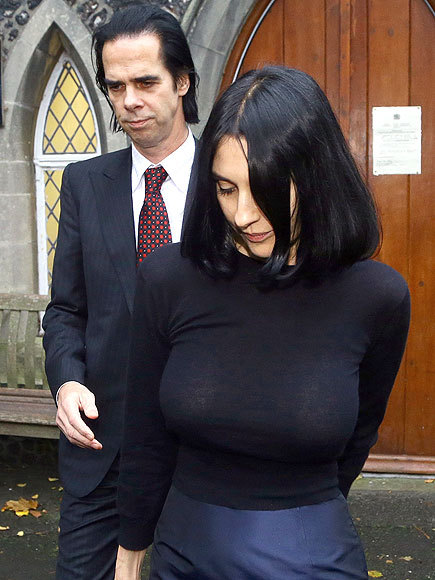
Through all this tragedy, I’m sure you couldn’t help but notice... who’s the babe with the shiny hair and the fabulous gazongas? That’s Nick’s wife, man! Susie Bick - or sometimes Susie Cave. She was a major model in the 80s and 90s. A model and an artist - it’s actually fitting.
And what’s more, Susie is the founder of The Vampire’s Wife - a label which has become super popular in the last couple of years. (Fashion people eyeroll The Vampire’s Wife because every dress has the same silhouette, but that’s out of the scope of this blog.)
There is a perception that models are are vapid and unserious. Their job is to look good, keep their mouth shut, and move merchandise. They cannot offer anything profound because their value is surface level. Men and women both push this way of thinking.
youtube
For example, when Brad Pitt was recently revealed to be dating 27 year old model Nicole Poturalski, people were disappointed. Brad Pitt has been a cultural fixture for decades - after all this time, people still find him fascinating. And they expect him to date someone who is equally compelling. Clooney married a human rights lawyer - why is Brad dating someone who makes posts like this on Instagram...

This was Lainey Gossip’s take on the new girlfriend:
A model, younger, it’s so predictable it’s almost boring.
Nice! I guess we’re all feminists until the woman in question is young and hot.
It's easy to assume the worst of a person who is unknown to us, but is beautiful and hooking up with someone famous. A million mean thoughts spring to mind. “A model, younger”. That’s scorn. You know exactly what she’s saying: hot but dumb. An uninteresting person. We know what Brad really wants her for...
If Brad Pitt is compelling to you, how compelling must Nicole Poturalski be to have won and held his attention? Brad Pitt has not been celibate in the four years since he separated from Angelina Jolie, but not until Nicole did we have confirmation of someone who he was definitely seeing. He allowed himself to be photographed with her en route to his French chateau. And what ensued was a weird story - she’s in an open relationship with some old German restaurateur and she has a son? She’s a sugar baby? Why would Brad fucking Pitt get publicly involved with someone who has a messy personal life: why hook up with a married 27 year old and weather months of stories about her open marriage if he didn’t actually like her? Why even be seen with her? The relationship is a little weird - but the reporting on it has been nasty. The new sugar baby angle which has emerged in the last week (late October 2020) is basically calling her a whore. This is the level of suspicion and derision directed at a model dating a public fixture like Brad Pitt. The notion that Brad Pitt would pay for female company or sex is patently absurd.
If our assumptions about models are correct, why do so many models end up with artistic geniuses? I don’t care about the Victoria’s Secret models who hooked up with the bassist from Kings of Leon. I’m talking about beautiful women who made it with icons, the premier humans of the past century:
MUSICIANS
Nick Cave and Susie Bick
David Bowie and Iman
Kanye West and Amber Rose
Bob Dylan and Sara Lownds
Mick Jagger and Jerry Hall
Mick Jagger and Carla Bruni
Serge Gainsbourg and Jane Birkin
Eric Clapton and Pattie Boyd
George Harrison and Pattie Boyd
Madonna and Jesus Luz
MISC. POWERFUL PEOPLE
Salman Rushdie and Padma Lakshmi
Donald Trump and Melania (lol)
Nicolas Sarkozy and Carla Bruni
Evan Spiegel and Miranda Kerr
Hitler and Eva Braun (What?! She had a brief career an artist’s model...)
Michael Jordan and Yvette Prieto
Rupert Murdoch and Jerry Hall
ACTORS (perhaps not artistic icons... but still creative and interesting)
Matthew McConaughey and Camila Alves
Johnny Depp and Kate Moss
Bradley Cooper and Irina Shayk
Bradley Cooper and Suki Waterhouse
Robert Pattinson and Suki Waterhouse
Vincent Cassel and Tina Kunakey
Halle Berry and Gabriel Aubrey
Leonardo DiCaprio and half the VS roster
Huge congrats to all the models with more than one entry on the list. You’ll note that there is a dearth of female icon/male model pairings - this is kind of interesting but not something I feel like getting into.
To some extent, the prevalence of the artist and model pairing makes sense. Men like good looking women. Rich, powerful men are high status and have access to good looking women. Plus, an artist needs a muse.
Many of the models in the list above are actually iconic in their own right. Like, when someone is having a great day on RuPaul’s Drag Race and looking sleek and skinny and flawless RuPaul might compare them to Iman. People pay $10,000 USD for handbags named after Jane Birkin.
Conversely, in the case of Amber Rose, she became the most desired woman in the hip hop industry c. 2010 because she was with Kanye. And most especially because she broke Kanye’s heart. Everyone wanted the girl from “Hell of a Life”. People point to that song as being about Kim - it was prophetic, yes, but not written about her.
Anyway. Could an icon, a legend, a genius, make it work with someone who had nothing to offer but a fast metabolism and a beautiful face? Do poreless skin and puffy lips make up for never finishing high school?
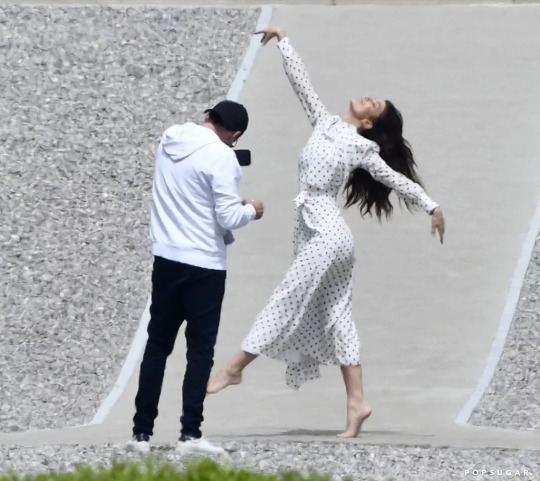
Wouldn’t being with someone superficial or unserious mean the artist was fundamentally boring in some way too? This is increasingly the assumption about Leonardo DiCaprio - seen above photographing his 23 year old model gf for her Instagram. Even Reddit mocks him for his age gap relationships with models.
And here’s where I try to make my point:
Kate Moss’ daughter, Lila, recently had her modelling debut during Paris Fashion Week. It was big news because she’s celebrity spawn - and of course her mother is one of the most iconic models ever. She was eviscerated.


On The Daily Mail, the comparisons to her mother flowed. What’s interesting is that Daily Mail readers do not like Kate Moss but they will defend her 90s modelling career with their life. They laud her bone structure, her waifish figure. An irresistible, undeniable face.
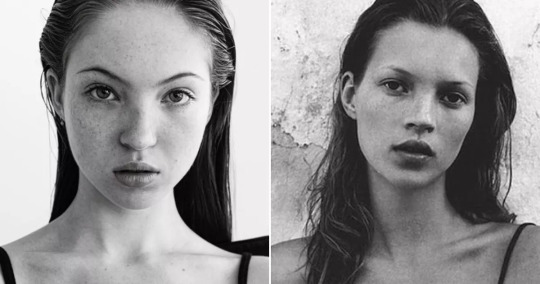
It seems silly to praise someone for the shape of their head and the way their skin fits over it... it’s not a talent, is it? Maybe it is! There is no shortage of hot girls in the world - but there may be a shortage of girls with preternatural charismatic beauty. Lila Moss (left above) is attractive - she even looks quite a bit like her mum. Perhaps in the pic above she even looks hotter than her mum (right above). But Kate Moss is more interesting: less perfect - half her eyebrow is missing, she’s less manicured. She exudes some kind of darkness, newness. Lottie Moss, Kate’s younger half-sister, is a similar story. Obviously attractive, obviously interested in modelling - but she’s lacking something.
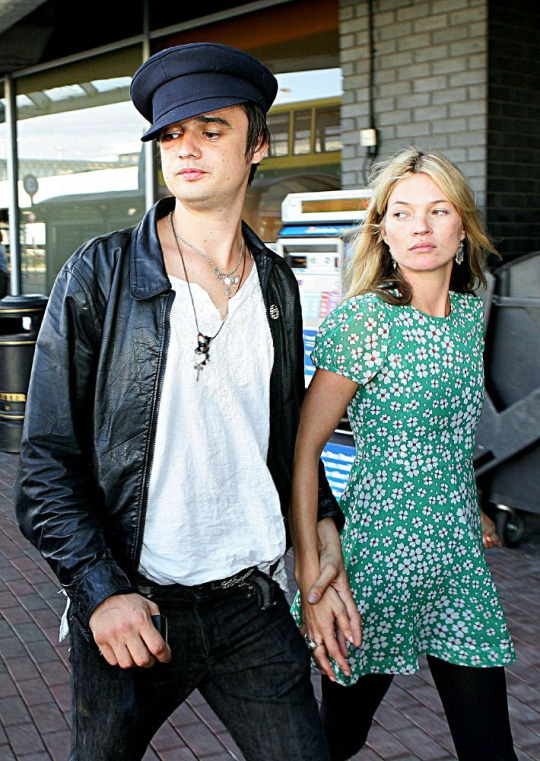
Bella Hadid came from a similar-ish background to Lila Moss (Bravoleb parents, frequent appearances on Real Housewives of Beverley Hills in her teen years, groomed by her ex-model mother) but Bella Hadid has it. She may have risen through the ranks due to nepotism and cosmetic surgery but she is someone people want to look at. She is sought after - not foisted upon us. Again, it’s not because she’s the hottest woman on the planet. She is gorgeous, but on top of that, there’s something beguiling about the angles of her face.
What’s this thing that clicks in your head telling you that Kate Moss’s face is more interesting than her daughter’s? It’s an intrusive thought: her skull shape is pleasing, let your eyes linger. A command: you will not forget that face.

Iman has it. Look at her. On meeting Iman, Bowie said: "I was naming the children the night we met... it was absolutely immediate." How many beautiful women had Bowie met in his life? How many had this effect?
Can you imagine trying to keep David Bowie or Bob Dylan interested in what you’re saying? Or Madonna? Or Michael Jordan? Most of us do not have a single thought in our head which would be of interest to these people. The models I listed earlier transfixed them. Mick Jagger could have romanced every woman on the planet - but he only wanted Jerry Hall (pls disregard affairs so I can make my point).
When a model hooks up with an artistic genius, it’s illogical to assume she’s vapid or that the icon is with her for shallow reasons. What we should assume is that she is the most interesting woman that icon has crossed paths with in a long time - which would make her very interesting indeed.
#david bowie#iman#brad pitt#nick cave#amber rose#Kanye west#kate moss#lila moss#leonardo dicaprio#bob dylan
58 notes
·
View notes
Text
the hypersexualisation of young girls in the media
The abuse and use of children for an adult’s personal gain is an issue that has always existed, regardless of the existence of the internet and the media. But the propagation of this platform (social media, entertainment or fashion magazines) has lead to a whole new sets of problems like the hyper-sexualisation of children, particularly young girls. The dictionary Larousse defines “hyper-sexualisation as “in society, the fact of giving an increasingly important place to sexuality, by multiplying references to it in the public space (media, advertising)”. In some cases this has been so normalised that criticism of these portrayals can be described as purist and excessive. What is the consequence of hyper-sexualisation of children in social media? The purpose of this essay will be to discuss the way the different ways children are sexualised in media and advertising and the effects it can have on their lives. It is not uncommon to hear the phrase “they grow up to fast nowadays” when referring to the youngest generations, as a result of their exposure to the media. Of course if the only thing young girls had to fear from acting like ‘grownups” was wearing makeup earlier in life, then there would be less cause for concern. Unfortunately, the dangers always revolves back to struggle of the ill- intentioned praying on the weak and easily influenced, and the continued danger of a patriarchal mentality passed down through generations. In the highly publicised fashion industry for instance, that holds a great influence on our society, there have been many instances of very young girls chosen as models, and put into adult life contexts. A notorious example is the 2011 edition of Vogue Paris, who published photographs of Thylane Lourby-blondeau, a 10 year old model who was pictures, in revealing clothes, makeup and jewellery, lying on a bed and looking at the camera with a sultry air.
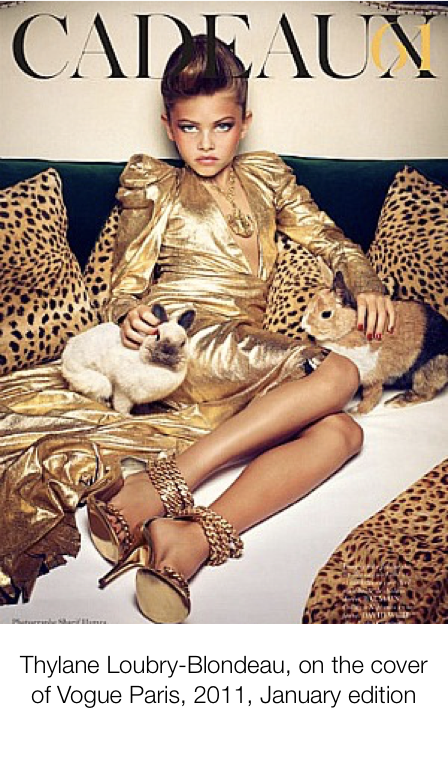
It sparked a controversy and brought up the issue of the hyper-sexualisation children. Many people and parents stated that it was inappropriate and dangerous to picture a young child in an undeniably sensual light, and that directing a shoot to appeal to post-pubescent men, while the child was too young to understand the implications. Thylane Loubry-Blondeau, on the cover of Vogue Paris, 2011, January edition Others defended it simply as ‘art’, the portrayal of a girl playing dress up, which ultimately does little to justify morals. Art was also the excuse Irina UNESCO gave after photographing and publishing albums of her daughter in sexual, pornographic scene, also nude, from the age of 4 to 11. In an interview with the purple magazine, Ionesco reflects on how her mother used her for years for her own personal gain and career, her works being widely known because they were so scandalous; “She would put make-up on me when I was a child. I slept very little, didn’t go to school. She took erotic photographs of me and made me act in erotic films, of which I was the subject. It wasn’t just about the photos — her entire approach was abusive. Sometimes she would send me to other photographers. She’d say: “You’re going to see such and such a photographer. It’s not great, but you’re going anyway.” It was becoming very dangerous.”(Ionesco). One of the disturbing things about the work Irina published about her daughter is that it is still available to purchase today, and even praised for it’s artistic value.

Eva Ionesco in her adult years has described in detail the “loss of childhood” and the life long effects she had to deal with from being sexualised and abused from such a young age “You were thrown into a world of adults, of nightlife, sex, and art very young — from the age of 12 or 13. And in one of the most liberal periods we’ve seen so far in terms of morals.” She went on to write a film inspired by her childhood and relationship with her mother. As with everything, it is important to avoid blind censure, and condemn anything without a deeper understanding. It is very easy to doggedly pursue a cause and become set in our opinions, and not allow freedom of expression to well meaning individuals, if their children are understanding and willing participants. The artist Sally Man was criticised for publishing nude pictures of her children. They were done as a celebration and a chronicle of her children’s evolution, childhood and slow progression to adulthood, and were done with the children’s understanding and consent, as was made clear in an article in the New York Times “The collaboration of the children in their mother’s work is apparent to anyone who spends time in their company. They are impish, argumentative participants, not robots. (When a photographer asked them what kind of portrait of their mother should accompany this article, they shouted, “Shoot her naked, shoot her naked.” She did.)”(2015).
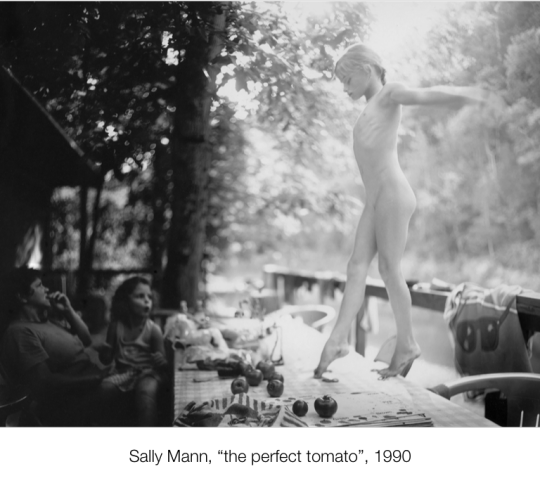
Sally Mann put the safety and wellbeing of her children above personal gain, choosing to publish her photo album ‘Immediate Family”, when the children would fully be aware of their choice. “I thought the book could wait 10 years, when the kids won’t be living in the same bodies. They’ll have matured and they’ll understand the implications of the pictures. I unilaterally decided.” (2015). One of the effects of the explosion of social media, and their ease of access, is that young children know have the ability to not only watch content that might not be suitable for age but to create content themselves. On Tiktok for instance, there is a lot of content based on visual, and sensual appeal, like women doing suggestive dances in revealing clothing. Women who are old enough have the experience and sense to be fully aware, and take distance themselves from the comments, they are doing it for their own enjoyment. Young girls watch these videos and see the adulation and attention these influencers get, and want to try it out for themselves. Dr Elaine Kasket explains this system on TikTok is artificially amplifying a natural phenomenon. Unfortunately, the same ease of access that allowed the children to post these videos also means that the people who want to abuse them can see them too. Not only do they write inappropriate sexual comment in the comments, or encourage more extreme behaviour for their own benefit, they also get in touch with the minors, and message them privately. Dr Kasket explanation is well illustrated by the 2020 film Cuties shows the traumas and effects of young girls lives governed by social media. This film portrays the journey of a young eleven year old Amy, as she joins a self organised preeteen dance group and is confronted with a whole new world of social media, pressures to be sexual and grown up.
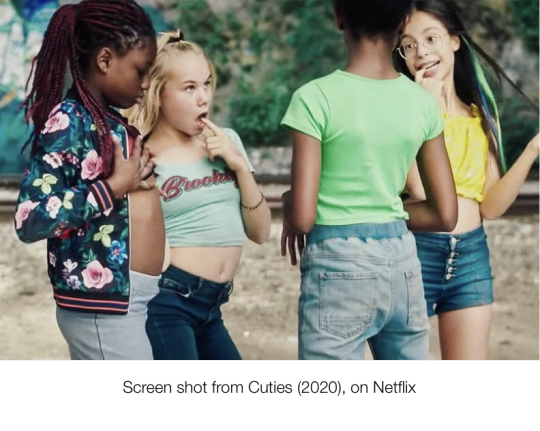
"Teenagers are naturally interested in taking risks and they’re naturally interested in finding out about sex and The sexualisation of young girls is an issue which can be confused, but is also linked to their natural desire to imitate their mother, or older siblings. Every single child has tried at some point to act like their parents. But with the rise and ease of access of social media (instagram, TikTok), children have access to whole new world, and many try to imitate what they see on these platforms. discovering themselves as sexual beings and exploring that. "They are open to flattery, they are open to seduction, they are open to the verification they get from the hearts they get and the likes they get”. (2020, The Sun)Unfortunately, the same ease of access that allowed the children to post these videos also means that the people who want to abuse them can see them too. Not only do they write inappropriate sexual comment in the comments, or encourage more extreme behaviour for their own benefit, they also get in touch with the minors, and message them privately. Dr Kasket explanation is well illustrated by the 2020 film Cuties shows the traumas and effects of young girls lives governed by social media. This film portrays the journey of a young eleven year old Amy, as she joins a self organised preeteen dance group and is confronted with a whole new world of social media, pressures to be sexual and grown up. Through their imitation of sexualised adult women on the media, young girls inherit patriarchal and misogynistic ideals that superficial beauty determines their worth.The child beauty pageants are intensely popular in America, and raise a lot of money for charity. They parade toddler and young children in false nails, high heels, heavy makeup and heavy wigs, and are trained like performing animals to smile, pose and wave at the camera.
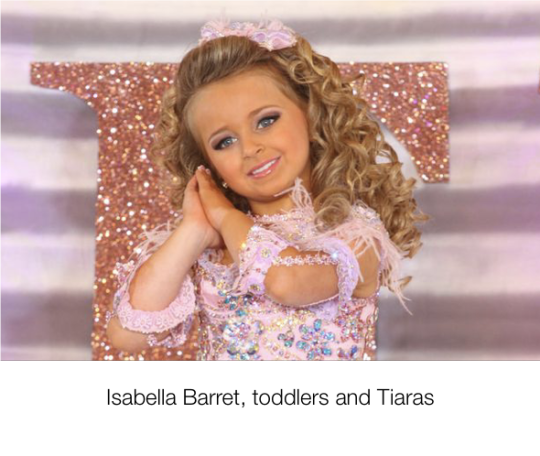
Naturally, many people argue that the simple fact of wearing makeup does not affect the girls in the slightest, and while that is true on the surface levels, there is much more than meets the eye. By dressing them up in all these gowns, and covering them in makeup and accessories to make them look “prettier”, the young girls are being taught that their natural appearance is not enough, and moreover that they need all these additional to get praise and win in life.
These little girls might enjoy looking “ like a princess”, but they are also adopting restrictive and superficial beauty ideals, and learning the all importance of appearance. Naturally, it is important to avoid completely vilifying pageants, they are not always the traumatic experience described by anti pageants or even shown behind the scenes pageants show. In her article for The Cut Goode collects the testimonies of other pageant stars and they are a mixed bag. Some describe that they have fond memories of competing, as ' bonding experience with their mother. An other used the platform to raise awareness about suicide, after her mother took her own life when she was 10 years old.But most often pageant are for the parents gain, and while women and mothers are often the ones organising them, they are, unknowingly or not transmitting the pressures of performative femininity to their daughters. Perpetuating a patriarchal and misogynist mindset in which Women must prioritise their appearance above all else, as the only thing giving them value.
And this cult of appearance and the emphasis on changing your appearance too fit the standards is the reason why eating disorders are so common in young girls and women. It could be argued that this is not the same as sexualisation of young girls, but beauty ideals and sexualisation are often intrinsically linked, especially if children are trying to abide to rules set by adults. While this essay has been essentially focussed on young girls, because they are the most targeted and at risk, the sexualisation and perpetuation of beauty ideals gives a toxic example to a future generation of men. Young boys are taught from a young age that pretty girls must look a certain way.
Conclusion:The sexualisation of children is a topic that is heavily discussed, by those against it and those who deny it’s existence or effects. The fact remains that sexualisation along ever occurs for an adult’s personal gain, or benefit.Little girls want to be pretty and attractive, but it is rarely for themselves.Admiring and wanting to be an adult is the most natural thing in the world, it is just tragic that they incorporate toxic ideals of femininity and beauty at the same time.
Bibliography
COTTAIS, C. LOUVET, M. (2021). The dangers of the hypersexualisation of young girls: a stolen childhood. growthinktank.org. [online] Jan. 2021. at https://www.growthinktank.org/wp-content/uploads/2021/01/The-dangers-of-the-hypersexualisation-of-young-girls_-a-stolen-childhood.pdf(Accessed 8 apr 2021)
Woodward, R. B. (2015) ‘The disturbing photography of Sally Mann’. The New York Times. At:https://www.nytimes.com/2015/04/19/magazine/the-disturbing-photography-of-sally-mann.html(Accessed 5 apr 2021)
Cuties (2020) Directed by M. Doucouré. Available at: Netflix (accessed 20 April 2018)
Ionesco, E.(unknown date) ‘Eva ionesco’. Interview with Eva Ionesco. Interviewed by O. Sham for The Purple Magazine, Paris issue num 32At: https://purple.fr/magazine/paris-issue-31/eva-ionesco/ (Accessed 9 Apr 2021)
Good, L. (2012) ‘I was a child pageant star: Six Adult Women Look Back’. The Cut. (November). At: https://www.thecut.com/2012/11/child-pageant-star.html (accessed 18 April 2021)
Hall. D. ‘How ‘supercharged catnip” Tiktok is fuelling the sexualisation of young girls an exploitation of teens.’ The Sun online. At: https://www.thesun.co.uk/news/10941512/tiktok-catnip-sexualisation-teens/ (Accessed 18 April 2021).
16 notes
·
View notes
Text
The Strides and Shortcomings of Queer BIPOC Representation on Television
Series like Orange is the New Black and The L Word pioneered the contemporary lesbian revolution on television by introducing us to entire casts of queer characters and relationships. Characters like Shane and Piper were beloved and revolutionary to an audience that could relate to the experience of being white and queer, but for a BIPOC audience, the portrayals were often tragic, unrealistic, or insignificant. Although these shows exist in the LGTBQ+ television canon, having predominantly white producers and writers leads to myopic portrayals of BIPOC characters. Orange is the New Black was praised for its range of representation but where that diversity ended--and was needed--was the Writer’s Room.
While the show struggled to portray its BIPOC characters with dignity, Piper, the protagonist, profited from the system in a way her BIPOC counterparts did not. Criticism grew louder with the death of beloved character, Poussey, and continued for its treatment, of the remaining BIPOC women and queer-identifying characters. Similarly, The L Word has been criticized for its treatment of BIPOC characters (the few they had were either killed or reduced to stereotypes), and specifically the show’s handling of bisexual and transgender characters.
The television industry tried to answer the criticism by introducing new BIPOC queer characters to its larger casts. Rosa Diaz from Brooklyn 99 came out as bisexual in the fifth season of the show, with an entire episode centered around her coming out to her Hispanic parents---highlighting a culture where homosexuality is often not accepted. Kat from The Bold Type came out as queer---a pivot from the standard formula we’ve seen of shows that star women navigating a big city like New York. After her first relationship with a woman, she further explores her sexuality within an open relationship. Then there’s Eric Effiong, the bestfriend of the straight protagonist, Otis Millburn from Sex Education. His sexuality is never troped but instead, is a facet of a charming and complex teenager. While this is a step in the right direction, the problem remains that BIPOC characters are often minimized in favor of their heteronormative, white counterparts. We see this in shows like Shrill, a comedy series that offers a variety of BIPOC queer characters, but reduces them to stereotypes to play off of the complexities of the protagonist, a heterosexual white woman.
Characters often lack authenticity, a problem that stems in part from the lack of representation in producer and writer roles. A significant moment, in which Kat is arrested for trying to stand up for Adena, is lost as writers fail to acknowledge what a situation like that could realistically look like for someone like Kat. Love, Victor which attempts to show the struggles of Latin protagonist, Victor, by giving him a traditional Latinx family to come out to, falls short at portraying an authentic experience. Both producers of Love, Victor are white, but contrast that with One Day at a Time, a series co-produced by Gloria Calderòn Kellet, who is Cuban. The series, about a Cuban American family--one member being the queer daughter, Elena--is rich with cultural authenticity. This is showcased in the way the Alvarez family, especially the younger generation, interacts with cultural traditions, like Elena’s resistance to a traditional Quinceañera because of its misogynistic history. Kellet also made sure to have a predominantly Latinx writing staff for the show.
There are a few series who have taken the lead in portraying nuanced queer relationships and identities with a BIPOC protagonist. High Fidelity stars Zoë Kravitz as Rob, a biracial Black queer woman, who keeps a list of her “Top 5 Heartbreaks,” including a woman. While the show explores Rob’s relationships with men more thoroughly, that doesn’t negate Rob’s queer identity. In Vida, Emma is a queer Chicana, kicked out of her home as a teenager by her mother for her identity and she later returns to her old neighborhood to help run the family bar after her mother’s death to reconcile with the emotional damage her mother left behind. Emma’s identity is fluid and she finds herself having to defend her queerness at a table full of fellow queer women. Known as “identity policing,” this moment shines a light on the complexities within LGBTQ+ communities. Twenties is another series we see with a BIPOC, queer protagonist. Hattie, a character based on show writer Lena Waithe, boldly navigates the entertainment industry by defying the norms of what it means to create good work as a Black creator while also navigating within a community of straight friends and unhealthy relationships. Jonica “JoJo” Gibs, the actor playing Hattie, said, “Having Hattie on TV as a masculine-presenting queer person — female — I think it’s revolutionary.” A nuanced portrayal of queer love is explored thoroughly in Euphoria with Rue and Jules. The show’s portrayal of a relationship on television between a cis woman and transwoman, especially one that is interracial, is not a dynamic we see often. Each of the above-mentioned characters are multifaceted and rooted in their cultural and queer identity. But being a revolutionary character in television can isolate them as the example for what it means to have a certain identity or a certain experience. Emma’s story is not the epitome of what it’s like to be queer Chicana woman living in Los Angeles. Kat’s is not the only story for a biracial Black queer woman in New York.
While it’s great to see more portrayals of BIPOC, queer characters written by BIPOC creators, it’s important that we begin to see these characters on a broader and mainstream scale, or risk-reducing these single narratives and characters to stereotypes. We’ve begun to see more Black and Latinx creators, but there is still a lot of representation that is lacking. Where are the stories centered around Indigenous people and their specific struggles? Asian? Transgender? The television industry needs to allow these stories to reach the mainstream, to stop relegating the many intricacies of these underrepresented identities and experiences to the periphery of the industry. And although these conversations are not always palatable to a white audience, that is exactly why they are so important to have.
#tv#culture#bipoc#characters#qtbipoc#orange is the new black#the l-word#brooklyn 99#the bold type#sex education#one day at a time#high fidelity#hulu#vida#represenation#euphoria#twenties#diversity#inclusion#latinx#queer#asian#bet#starz
40 notes
·
View notes
Note
"I'm just saying that it's too bad more people didn't seem to care much about celebs well-being before now. Prior to being social media warriors and whatnot."
THIS!!!
OMG, THIS.
Thank you, fellow Anon. You worded it perfectly!
And there's still always usually a sexist angle too, if you notice? From women themselves, a lot of the time!
It's so unfair that many famous women I've been fans of over the years were being judged or slut-shamed instead of being defended when it was needed the most. And say if, for example, one happened to be a Playboy model or were in adult films? Forget it! "They deserved such and such" or "they were asking for it". And it was more than likely other women saying such things!
Oh and, yes, your answer made perfect sense to me as well!
Love worthy discussions like this! It's still necessary (sadly).
Well, thank you!
You bring up a really good point with the women in the modelling/ sex work industry. I think it was about a year ago, perhaps a little more ago that Amie Harwick was killed by an ex - boyfriend of hers.
Amie Harwick was a model, sex therapist, and author (total Dita Von Teese vibes). She was also engaged to Drew Carey for a period of time. She was killed by an ex-boyfriend had been stalking her (Not Mr. Carey). She was pushed off the balcony of her home, where she fell to her death.
The class act that is Wendy Williams made an absolute MOCKERY of this woman's passing the next day on her show. She told the audience about the news and then made a joke about how Harwick dated Carey and then fell her to death...
Amie Harwick, come on down!!!
I think that Williams' reaction was disgusting, crude and what some people projected onto Harwick. She deserved it because of who she was, and how she made her money. And that's not the case.
I know this is quite off- topic from the original ask, but this made me think of it.
1 note
·
View note
Text
Feminist Vampires: Don’t Invite Mainstream Audiences Inside! (Madi Mackey)
youtube
Bit, written and directed by Brad Michael Elmore, is the story of a young trans woman named Laurel who moves to Los Angeles and finds herself mixed up in a friend group of female vampires. She is quickly turned into a vampire herself and thrust into their world. Duke, the leader of the girl gang, implements some very strict rules for the group. The most important rule is to never turn a man into a vampire, stating that they can’t handle the power. The film follows the five young women as they navigate their lives as both vampires and members of a bustling Los Angeles night life. The drama comes to a peak when Laurel accidentally bites her brother and has to decide between saving his life and following Duke’s rules.
The film is an excellent example of modern day intersectional feminism. The core group of women is very diverse, representing African American, latina, butch, and transgender identities. They are all women-loving women in some sense, though their specific sexualities are never detailed. They are unflinchingly focused on retaining their power and their sisterhood by refusing to let a man into their groups and forbidding any usage of their mind-influencing powers on each other. However, the film is not perfect, and does not hold up to much scrutiny from a queer perspective. Duke, the previously mentioned leader, is also the only white girl in the group. Their hatred toward men could push the idea that all feminists hate men, further isolating the movement. Finally, the film does not mention class or any struggles associated with the marginalized communities the characters belong to, reducing the film to a post-gender, post-sexuality world. For these shortcomings, I argue that Bit is a great stride in the queer movie industry, but it misses the mark in many categories, and could therefore cause more damage to the trans, lesbian, and feminist communities than the positive impacts of such representation could outweigh, if it were to leave the arthouse and break into the mainstream.
One major theme in Bit is intersectional feminism. As mentioned before, the group of vampires is quite diverse, but this inclusion is only skin-deep. Their dynamic still enforces white, middle-class homonormativity. The girl with the most power is white and cisgender, and all of the girls are able-bodied and middle- to upper-class. Joyrich explains that television industries must continually portray homonormativity to maintain profits, and the same can be said for the film industry (2013, p. 5). Although this is a low-budget film that premiered at an independent film festival, the director, Elmore, stated in an interview that one of his main goals was for the movie to reach a larger audience of at-home viewers (Dunagan, 2019). His yearning for mass reception might have caused him to reproduce homonormativity for the film to be more palatable and, therefore, more profitable.
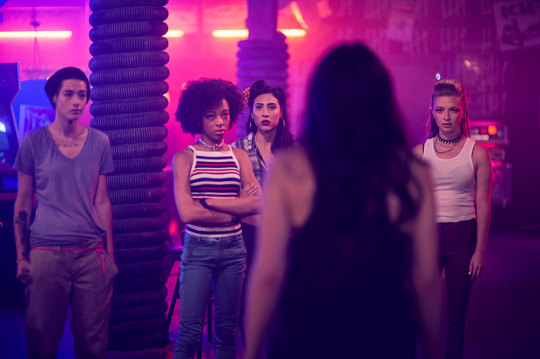
This is not the only flaw within the production practices for this film. Similar to criticisms regarding Pose and The Death and Life of Marsha P. Johnson, Elmore is a cis white man who took it upon himself to tell a queer story. By doing so, he took production resources and material benefits from its popularity away from the trans, lesbian, and POC communities who live the stories that he is telling (Tourmaline, 2017). Elmore explains that he read multiple theoretical texts and memoirs regarding gender while writing the script, and then had a close, gender non-conforming friend of his approve it before he, “felt more comfortable to show it to people in and around that conversation and community that I wasn’t close to” (Dunagan, 2019). While he did a fair bit of research into the community before creating the film, this isn’t the same as being a member of the community. Cavalcante explains this difference as a split between identifying with and identifying as a character, with identifying as a character always hitting closer to home and being more personal (2017, p. 14). Although Cavalcante makes this distinction in regards to audience reception, I believe it can be applied to production as well, and how Elmore wrote characters he could identify with, whereas a trans or POC writer could have written more personal characters that they identify as. Because Elmore is not trans or a POC, he needed to enforce homonormativity in his film in order to create characters that he identified with, as he has never lived as someone on the margins.

(Brad Michael Elmore, writer and producer of Bit)
Still, the production methods and content of the movie themselves could absolutely be described as queer. Benshoff & Griffin describe new queer cinema as films that have low-budgets, usually remain in the arthouse, and show the inadequacy of labels, instead focusing on the social discourses surrounding gender, race, and class (2004, pp. 11-12). Bit checks all of these boxes, even offering some helpful insights into social discourses. When Laurel, the transgender protagonist, is turned into a vampire, Duke tells her that their number one rule is to absolutely never turn a man. Laurel looks worried and asks, “What about me?” to which Duke responds, “Never even crossed my mind” (Elmore, 2019). Her immediate acceptance of Laurel’s identity expresses a consistent mood throughout the entire movie. Laurel’s transition and identity are never remarked in more explicit terms, and the sexuality and ethnicity of the other women are all treated with the same unspoken acceptance. The only identities that are ever mentioned are class and sex; Laurel asks one of the girls how they afford to live in L.A., and anyone who identifies as a man is immediately treated with contempt.
youtube
(watch video until 42:50)
While these approaches to intersectional identity may function well within the underground audience of new queer cinema, they could cause problems if Bit were to hit the mainstream. As Tongson explains, media representations help to produce our material realities; we rely on media to understand identities that we don’t know in the real world (2017, p. 158)). By ignoring the struggles of marginalized communities in the film, Bit raises more questions than it answers for viewers who are unfamiliar with these communities. Their confusion could cause these people on the margins to become cultural interpreters and explain their communities to those who don’t understand. Some see this as an opportunity to share their life experiences and cross cultural bridges; for others, it can become a burden of representation and they may lose a feeling of privacy (Cavalcante, 2017, p. 11). Bit could be seen as a welcome break from tragic representations for people within the trans community. Conversely, Elmore’s silence on these issues could also lead mainstream audiences to believing that marginalized communities do not face any struggles in modern America, and therefore lose some empathy.
This mediated understanding of reality could also be greatly detrimental to the feminist movement if it were to hit the mainstream. While I loved the explicitly feminist tone of the film, other audiences could find it off-putting and apply Bit’s ideology to all real-life feminists. The group of women in this film are quite outspoken around their distrust and distaste toward men. This could be applied to feminists, who are already called “man haters” in the real world as an attempt to invalidate their arguments. Elmore could be adding fuel to this fire by depicting feminists as exactly what the mainstream fears them to be.
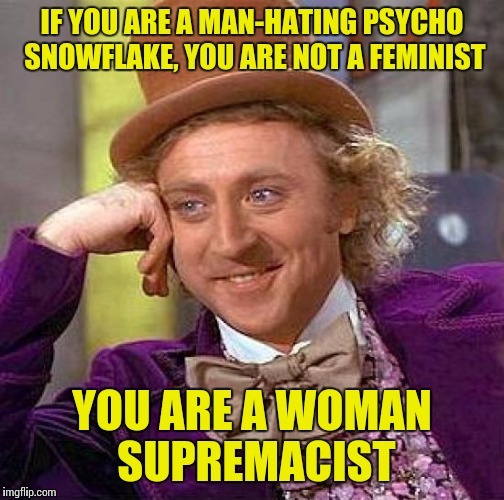
Simultaneously, this bold approach to intersectional feminism is exactly why I, and many other queer viewers, love this film. My own subject positionality influences my understanding of Bit, just as those of mainstream audiences would make them feel differently about the film. I am a college-educated, middle-class, white, bisexual woman. I am also an outspoken feminist and socialist. All of my converging identities influence my view on this film and the opinions I have on its themes. As a young person who spends a lot of time in feminist spaces online, I felt such a rush while watching this film and hearing them directly saying things like, “Men can’t handle power. They have it already, and look at what they have done with it” (Elmore, 2019). A lot of people online say things about hating men, and I know from my own personal experience that the argument is so nuanced that it is simply easier to say “kill all men” than it is to explain what feminism really stands for and how it is, in fact, not simply man-hating. I love that this film expects the viewer to have this same knowledge, and can therefore say things like this without needing to defend itself and explain all of the nuance behind such a statement.
My status as middle-class and a socialist also have a great impact on my subject positionality and interpretation of Bit. Coming from a middle-class family and city, everything in the movie seemed normal to me. I was able to identify with the characters’ struggles, as they didn’t have anything to do with money or family issues. However, I could see this posing an issue for people who are struggling financially or with their family dynamic. To make up for this, the film has a lot of discourse regarding the redistribution of power and resources. Downward redistribution is a key tenant of leftism, so this movie displays clear leftist ideologies from a socio-political perspective (Duggan, 2002, p.XVI). We can see this in lines like, “How would you like to hold the keys to the kingdom for a change?” when Duke is talking to Laurel about turning, and at the very end of the movie, when Laurel’s brother asks her what they should do next and she responds, “Maybe what everyone with power should do and never does: share it” (Elmore, 2019).
youtube
(watch video until 1:30:00)
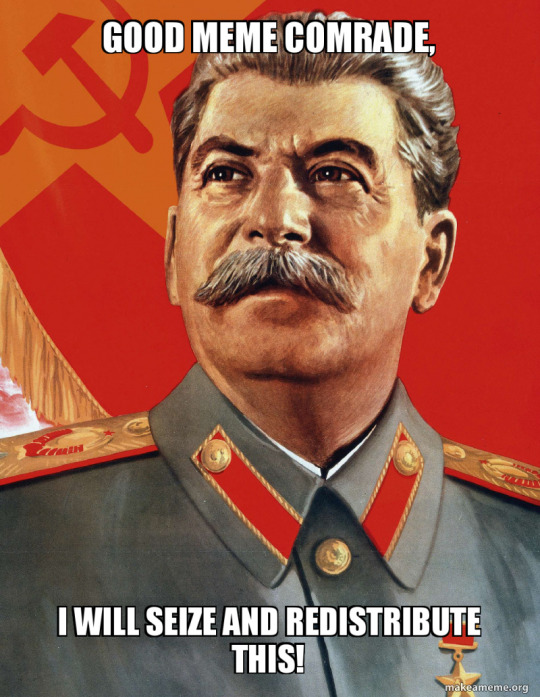
Finally, watching this film from the subject positionality of a woman greatly influenced my interpretation and reaction. At first, I was appalled by the group of girls and how nonchalantly they killed people, especially men. Laurel was written to have the same feelings of shock and disgust. So, when Duke said, “Our role is secondary. Our bodies are suspect, alien, other. We’re made to be monstrous, so let’s be monsters,” (Elmore, 2019) that was enough of an explanation for Laurel, and for myself, to become sympathetic to their cause. I have been personally affected by the feelings of otherness and being secondary that Duke lists, so this was a perfect line to change my opinion on their actions. However, if a man were to watch this film, especially if he were not to be a feminist, he might not be so sympathetic because he does not have the same experiences and understanding of what it is like to live in this world.
youtube
(watch until 41:12)
Bit is a film that crosses many boundaries, while still upholding some homonormativity for the sake of profit and consumption. It was written with the expectation of an audience that is knowledgeable of marginalized communities and social issues, making it thoroughly enjoyable to watch from a queer perspective. However, if the film were to break into the mainstream spotlight, its lack of nuance could cause harmful backlash toward trans communities, people of color, woman-loving women, and feminist movements.
References
Benshoff, H. M. & Griffin, S. (2004). Queer cinema: The film reader. Psychology Press.
Cavalcante, A. (2017). Breaking into transgender life: Transgender audiences’ experiences with ‘first of its kind’ visibility in popular media. Communication, Culture & Critique, 10(3), 538-555. https://doi.org/10.1111/cccr.12165
Duggan, L. (2002). Introduction. In The twilight of equality? Neoliberalism, cultural politics, and the attack on democracy (pp. X-XXII). Beacon Press.
Dunagan, R. (2019, August 2). Interview: A talk with Brad Michael Elmore, Director of OUTFEST’s ‘Bit’. Flipscreen. https://flipscreened.com/2019/08/02/interview-a-talk-with-brad-michael-elmore-director-of-outfests-bit/
Elmore, B. M. (Director). (2019). Bit [Film]. Vertical Entertainment.
Joyrich, L. (2013). Queer television studies: Currents, flows, and (main)streams. Cinema Journal, 53(2), 133-139. https://doi.org/10.1353/cj.2014.0015
Tongson, K. (2017). Queer. In L. Ouellette & J. Gray (Eds.), Keywords for media studies (pp. 157-160). NYU Press.
Tourmaline. (2017, October 11). Tourmaline on transgender storytelling, David France, and the Netflix Marsha P. Johnson Documentary. Teen Vogue. https://www.teenvogue.com/story/reina-gossett-marsha-p-johnson-op-ed
6 notes
·
View notes
Link
Patriarchy has been extremely successful, despite its recent vilification. Most cultures worldwide are patriarchal – to find examples of successful matriarchal societies you either have to turn to ancient history, remote outskirts of the world or feminist fiction. However, this hasn’t stopped the feminist collective from queefing out books and even a hashtag hailing the end of patriarchy in a textbook example of incestuous amplification.
What patriarchy, after its apparent downfall, will be replaced with remains to be seen. Hamsterizations aside, there is surprisingly little data available about what life would be like in a society made up of only men or only women. An enterprising social scientist might want to perform an experiment where groups of men and groups of women are left to their own devices, having to work together to survive against the elements and build a civilization from scratch. However, this scientist would have a very hard time convincing ethical review boards that the inevitable suffering of his participants would weight up against the value of the data.
Luckily, reality television is not bound by ethical constraints and once in a while, in its never ending quest for viewer ratings, reality TV accidentally performs a very interesting experiment that social scientists would never be allowed to do.
Quite a few years ago, I had the pleasure of watching the Dutch version of Survivor (Expeditie Robinson) with my feminist roommate. That particular season would have two islands, one populated by men and one populated by women. My roommate had been promoting that particular series to me and the other students in the house for weeks because it would show us, according to her, what a society run by women – free from the evils of patriarchy – would be like.
And it did. Oh it did.
Here is what happened: initially both groups were dropped on their respective islands, given some supplies to get started and left to fend for themselves. In both groups there was some initial squabbling as people tried to figure out a local hierarchy. The men pretty much did whatever they felt was necessary – there was no leader giving orders. Men who felt like hunting, foraging or fishing did so. Another guy decided he was fed up with sitting on sand and started making benches. Others built a hut that gradually grew and evolved. Another guy cooked every night. Within days a neat little civilization was thriving, each day being slightly more prosperous than the previous one.

The women settled into a routine as well. The hung up a clothesline to dry their towels, then proceeded to sunbathe and squabble. Because unlike men, women were unable to do anything without consensus of the whole group. And because it was a group of at least a dozen women, consensus was never reached. During the next few episodes, the women ate all their initial supplies, got drenched by tropical storms several times, were eaten alive by sand fleas and were generally miserable. The men on the other hand, were quite content. There were disagreements of course, but they were generally resolved.
Eventually, the people running the program decided something had to change. In order to help the women out, three men would be selected to go to their island. In return, three women would take their place at the men’s island. The look on my feminist roommates face during this episode was priceless.

Initially, the three men selected for the women’s island were ecstatic, for obvious reason. But then they arrived at the island and were greeted by the women.
‘Where is your hut?’, they asked.
‘We have no hut’
‘Where are your supplies?’ they asked, dismayed
‘We ate all the rice’

And so on. The three men ended up working like dogs, using all the skills developed by trial and error in their first few weeks – building a hut, fish, trying to get the women to forage. The women continued to bitch and sunbathe. The three women who were sent to the men’s island were delighted – food, shelter and plenty of male attention was freely available. They too continued to sunbathe.
And that my friends, is what patriarchy is. My former roommate, unsurprisingly, is no longer a feminist.
Now this might all be a fluke, a white raven, an exceptional case not representative of society as whole. But that particular season of Dutch Survivor is not unique. CBS broadcast several Survivor seasons in the US, where men and women started off in separate groups. In most cases (the Amazon and One World), the result was the same. The men quickly got their act together, getting access to food, fire and shelter while the women spent a lot of time and energy on petty little squabbles, eating their meager supplies, getting drenched in storms and generally being pathetic. The opposite situation, where men didn’t get their act together while women quickly built a functional micro society, has not yet been observed outside of feminist fiction, and it probably never will.
https://www.returnofkings.com/27852/why-patriarchy-is-the-greatest-social-system-ever-created“
One of feminism’s irritating reflexes is its fashionable disdain for “patriarchal society,” to which nothing good is ever attributed. But it is patriarchal society that has freed me as a woman. It is capitalism that has given me the leisure to sit at this desk writing this book. Let us stop being small-minded about men… If civilization had been left in female hands, we would still be living in grass huts.” – Camille Paglia, lesbian feminist, in Sexual Personae
In the feminist creation myth, patriarchy is original sin. It is the Lucifer from which all evils flow. Without patriarchy, we would all live in a genderless role-less feminist garden of Eden.However, just as the name Lucifer actually means light-bringer, patriarchy is actually an enlightening influence which has brought humanity out of the mud into civilization. Feminism only exists in the shadow of the massive abundance produced by patriarchy. Patriarchy is not the enemy. Patriarchy is the greatest social system ever created.
The Myth of Patriarchy
Feminists ascribe all social ills to patriarchy. Like a medieval inquisitor looking for evidence of the devil, patriarchy’s influence is supposedly all around us – our media, our schools, and even our most intimate relationships. Patriarchy is responsible for domestic violence, lost promotions, mean comments on twitter – even women’s own feeling about themselves.
Anyone who doesn’t subscribe to feminist dogma is believed to be possessed by the influence of patriarchy and in need of exorcism by an ordained Priest of the Cathedral of gender studies theory. They are forced to renounce their views, or face excommunication from the public sphere. In more honest times, the dominant religion simply called freethinkers “heretics” and burned them at the stake.
Origins Of Patriarchy
In reality, there is nothing so mysterious about patriarchy. Patriarchy is a division of social roles based in natural biological gender differences.
Males and females have very obvious self-evident biological differences. Women can have babies. Men cannot. Women’s bodies are designed for nurturing, with wombs, breasts, and hormonal cycles. During pregnancy, women are unable to physically exert themselves. Men’s bodies are designed for physical exertion, and as a whole, physically stronger.
Imagine you are part of a small tribe in a survival situation. Conquest, war, famine, death – any of the four horsemen could strike at any moment. How would you divide social roles?
As Jack Donovan states in The Way of Men:
Because your group is struggling to survive, every choice matters. If you give the wrong person the wrong job, that person could die, you could die, another person could die, or you could all die. Because of the differences between the sexes, the best person for jobs that involve exploring, hunting, fighting, building, or defending is usually going to be male. This is not some arbitrary cultural prejudice; it is the kind of vital strategic determination you need to keep your group alive.
In other words, traditional roles are the basis of our survival as a species.
The Sacrifice Of Men
In patriarchy, men sacrifice their energy, their time, and sometimes even their lives for the betterment of women and children, and women give themselves to nurturing children and families.
Feminists define patriarchy as a system of dominance, in which men oppress women. This redefines men’s sacrifice as an act of control, rather than love. Many men are perfectly happy to have sex with women without offering any protection or value to the woman or her resulting children. It is an act of love that men willingly give up their freedom in order to provide for women, and their young.
Patriarchy is about love. It is about the love of human beings in families, tribes, and small communities working interdependently for the benefit of one another.
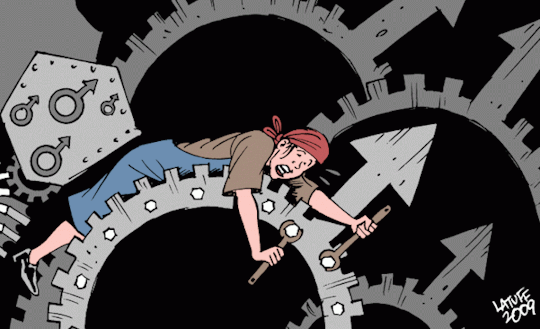
Feminism Was Created By Capitalism
Feminism in it’s modern form began in the last hundred years, when industrialization moved our economic survival from requiring hard labor to requiring skilled labor. Work used to require hours of physical lifting, now it requires sitting at a desk. This transition made it possible for even the weakest women to work.
Employees are much easier to manage as interchangeable cogs than as gendered individuals with unique needs. In fact, convincing women to work doubles the size of the work force, allowing employers to half everyone’s wages. It’s simple supply and demand. As the book Revolution From Above chronicles, early feminist movements – even Marxist feminists – were bankrolled by major capitalists in order to increase the workforce and lower wages.
Feminism is a product of capitalism. The “you can have it all” message is an attempt by corporations to swindle women out of their biological needs. If you’re a feminist, you’re a capitalist, because you’ve make work a greater priority than community, children, or love.
In families, each member is irreplaceable, but in a company everyone is replaceable. In patriarchy, women toiled for one man who loved her and the children he gave her. In capitalism, women work for many men completely indifferent to her and willing to disposes of her the moment cheaper labor appears.
Feminism Commodifies Relationships
In patriarchy, selfish relationship impulses were restrained. In capitalism, they are encouraged. Each member of a tribe of community works for the benefit of those around him, but in capitalism men and women are independent agents, with no loyalty or duty to anyone else.
Roles that were traditionally played by family are now outsourced. Group homes for the elderly, day care for the children. Even mentors and friends can be bought in the form of therapists and life coaches.
This system destroys intimate relationships. It selfishly benefits a woman to bear the children of strong lone alpha’s rather than the man providing for her. It selfishly benefits a man to impregnate every available fertile woman with no intention of further contact. Alpha fucks, beta bucks.
Feminism has created a war between the sexes with each side trying to maximize their profits in the sexual marketplace while spending as little as possible. We’re all little atomized corporations united only by the laws of bio-mechanics.
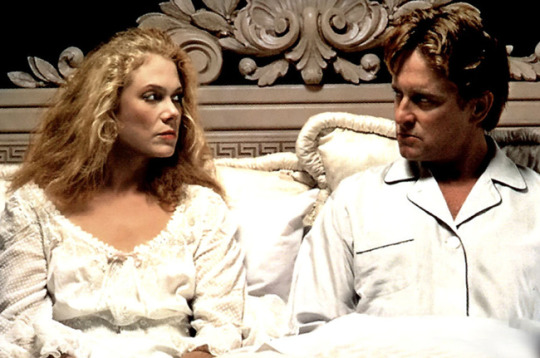
Men Have Lost Reason To Work
This new dynamic has freed men from work. In his new book Bachelor Pad Economics, Aaron Clarey advocates a minimalist approach to money – buy only what your need and using your time for your benefit rather than a corporation’s. This approach is already being taken as men drop out of the system, earn less than women, and avoid higher eduction.
The reason men worked hard was to provide for their families. Men didn’t work long hours out of self-interest. They did so out of love. Most men can subsist on very little. It’s been said that civilization was created to impress the opposite gender. Without reward, there is no reason to work. No carrot, no jump.
As a society, we’ve reached a point where technology has eliminated the need for everyone to work. Just as capitalism freed women from their natural role, it’s freed men from theirs. Masculinity has been reduced to a fashion statement.
Return To The Natural Order
While we understand that animals exists in natural groups – a herd, a flock, a pack – we forget that man is an animal too. Man’s natural group is the tribe. Humans are mammals. We learn through relationships, rather than instinct.
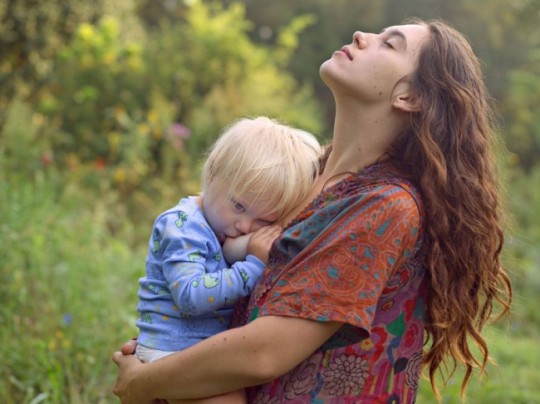
Children require love, attachment, and stability that can only be found in emotional bonds with present adults. They are not interchangeable cogs. You can’t buy a mother’s love or a father’s wisdom. Love cannot be outsourced. Authentic love is only possible within patriarchal community.
To a company, non-working children are a nuisance. The epidemic of single motherhood, plummeting birthrates, and mental illness is due to the rejection of traditional roles. If society wants healthy happy children and loving stable communities, it must embrace the lost values of patriarchy.
In the early tribes, humans were entirely dependent on one another. Now they are independent and unsatisfied. Returning to traditional roles means living interdependently, and align with the natural order not because we have to, but because we choose to. We could exist alone, but we are fulfilled together.
Of course, feminists will call this oppressive. They want you to be free – free from community, free from belonging, free from love. A mass of apes fighting over the highest value mate behind a gilded cage.
1 note
·
View note
Text
Filtering Female Characters Through the Male Gaze
Female characters filtered through the male gaze: A (way) too long post about why we need a more diverse and inclusive approach to staffing showrunners, writers, directors, crew – heck, all roles -- in TV and movies.
Yes, I know I am not the first person here on this.
And note that while I have included a few tags b/c I talk about my frustration with Shadowhunters, Veronica Mars, the Irishman, Richard Jewell, and a few other recent shows/movies, I don’t get to this stuff until the very end, I appreciate that fans may not want to wade through the entire essay, which (again), is a bit of personal catharsis.
I recently had a random one-off exchange with a TV writer on twitter. The writer said that she had enjoyed the movie Bombshell much more than its Rotten Tomatoes rating would have suggested. She wondered if the disconnect between her experience/perception of the movie and that of mainstream reviewers might have been shaped by gender: Specifically, she observed that Bombshell is a movie about women, but most reviewers are male.
I have complicated feelings about Bombshell. On one hand, yes, there was and is a toxic culture at Fox News. Yes, Gretchen Carlson and Megyn Kelly were victims of that toxic culture. But no, these women were not mere bystanders: They traded in the racism, misogyny, and xenophobia (for starters) that still characterize Fox News today. Why should these wealthy, privileged white women – both of whom spent many years as willing foot soldiers in the Fox News army -- get a glossy, Hollywood-approved redemption/vindication arc? On the other hand, I am glad that the movie makers made a film about sexual harassment, and that the movie presented Kelly, in particular, as an at least somewhat complicated character. This would not be the first time that a movie about women – especially complicated, and not always likeable women – has proven to be polarizing.
My ambivalence about Bombshell notwithstanding, the writer with whom I exchanged tweets is (not surprisingly, since she is in the industry and I am not) on to something when it comes to gender, character development and critical reception. It’s not just that Bombshell was about women, but reviewed largely by men; it’s that stories about female characters (real or fictional) often are filtered through the male gaze in Hollywood: On many projects – even those focused on female characters – creators/ head writers are male, directors are male, showrunners are male, and producers are male. This matters, because preferencing the male gaze impacts what stories about women get told, who gets to tell them, and how these stories are received inside and outside Hollywood.
First, though, the caveats. I do not mean to suggest that men can never tell great stories about women. Of course they can. I also don’t mean to suggest that being female exempts creators, writers, directors, showrunners, etc. from sexism or misogyny (or any other forms of bigotry, as my discussion of Bombshell suggests). There are plenty of women who prop up the patriarchy. Rebecca Traister’s work speaks to this issue, as does the work of Cornell philosopher Kate Manne. There is an important literature on the concept of misogynoir (misogyny directed at black women, involving both gender and race), a term coined by black queer feminist Moya Bailey, as well. Intersectionality matters in understanding what stories are told, who gets to speak, and how stories are received in and outside Hollywood. I also don’t mean to suggest that there are no powerful women in Hollywood. Shonda Rhimes; Ava DuVernay, Reese Witherspoon (increasingly, given her role as a producer of projects like Big Little Lies), Greta Gerwig’s work in Lady Bird and Little Women, and others come to mind. As I am not in the entertainment industry, I am sure others could put together a far more complete and accurate list of female Hollywood power brokers. And, finally, I appreciate that Hollywood is a business, and people fund and make movies that they think their target audiences want to see. So long as young, male viewers are a coveted demographic, we are going to see projects with women who appeal to this demographic onscreen.
Given these caveats, why do I think that the filtering of female characters through the male gaze is an issue? For me, it has to do with a project’s “center of gravity” -- that place, at the core of the project’s storytelling, where the characters’ agency and autonomy comes from. It’s where I look to understand the characters’ choices and their narrative arcs. When a character’s center of gravity is missing or unstable or unreliable, the character’s choices don’t make sense, and their narrative arc lacks emotional logic. Center of gravity is not about whether a character is likeable. It’s about whether a character – and the project’s overall storytelling and narrative voice – make sense.
When female characters are filtered through a male gaze, a project’s center of gravity can shift, even if unintentionally, away from the characters’ agency and point of view: So, instead of charting her own course through a story, a female character starts to become defined by her proximity to other characters and stories. She becomes half of a “ship” . . . or a driver of other characters’ growth (often through victimization, suffering, or self-sacrifice) . . . or mostly an object of sexual desire (whether requited or not). Eventually, she can lose her voice entirely. When that happens, instead of a “living, breathing” (yes, fictional, I know) character, we are left with a mirror/ mouthpiece who advances the plot, and the stories, of everyone else.
What are some recent examples of this? The two that I have mentioned recently here are Shadowhunters and Veronica Mars S4.
- With SHTV, I will always wonder what might have been if the show – which is based on books written by a woman, intentionally as a “girl power” story – had female showrunners. Would an empowered female showrunner have left Clary, THE PROTAGONIST OF A 6 BOOK SERIES – alone on an NYC street in a skimpy party dress, in November, with no money, no ID, no mother, no father figure and no love of her life, stripped of her memories, her magic, and chosen vocation, as punishment, after she saved the world? Would a female showrunner have sidelined Clary’s love Jace, and left him grieving and suicidal, while his family lived their best lives and told him to move on? Would a female showrunner have said, in press coverage of the series finale, that the future of the Clary and Jace characters was a matter for fan fiction? After spending precious time in the series finale wrapping up narrative arcs for non-canon and/or ancillary characters. And to my twitter correspondent’s point, I guess I am not surprised that mainstream entertainment media outlets didn’t call out the showrunners’ mistreatment of Clary, and by extension, Jace, and the obliteration of their narrative arcs -- and yes, I am looking at you, Andy Swift of TV line (who called the above-mentioned memory wipe “actually perfect”).
- Likewise, with Veronica Mars, would a more diverse and inclusive writers room have made S4 Veronica less insightful and less competent than her high school self, or quite so riven with self-loathing, or quite so careless and cruel with the people in her life who love her? Would a more inclusive creative team have made S4 Veronica less aware of the class and race dynamics of Neptune, yet more casually racist, in her mid-30s, than she was in high school?
- There are so many other examples from 2019. Clint Eastwood falsely suggesting that a female reporter (who is now deceased and thus unable to defend herself) traded sex for tips from an FBI agent in Richard Jewell. Game of Thrones treatment/resolution of the Ceresi and Daenerys characters – where to even start. Martin Scorsese’s decision to give Oscar winner Anna Paquin’s character a total of 7 lines in the 3-plus hour movie the Irishman.
- And, in real life, I wonder whether a Hollywood that empowered and supported female creators would make sure that people like Mira Sorvino and Annabella Sciorra got a bunch of work while also making sure that Harvey Weinstein never again is in a position of power or influence. Same with female comics targeted by Louis C.K. Matt Lauer, Charlie Rose … the list is long, and Kate Manne’s work on what she calls “himpathy” is useful here.
To be clear, I am not saying that stories involving “ships” of whatever flavor, stories of suffering and self-sacrifice, and stories of finding (or losing) intimate relationships are “bad” or “wrong” or inherently exploitive of female characters. I don’t think that at all. I also don’t think that female characters have to be perfectly well-adjusted, virtuous, or free from bias, or that they should never be make bad choices or mistakes. I want female characters who are flawed, nuanced. I don’t mind lives that are messy, or romantic entanglements that are complicated. Finally, I don’t think that that faulty, reductive, or unfair portrayals of female characters is a new thing. Mary Magdalene was almost certainly not a prostitute, after all. And classicist Emily Wilson – the first woman to translate the Odyssey into English – has brought a hugely important perspective (including an awareness of how gender matters in translation) and voice to the translation and study of canonical characters and works.
At the end of the day, I just want female characters to be able to speak with their own voices, from their perspectives. I want them to have their own, chosen, narrative arcs. I want them to speak, act, see, and feel as autonomous individuals, with agency, and not just in reference to others. And, I think that more a more diverse and inclusive approach to staffing writers rooms and in choosing show runners, directors, and key positions in storytelling would help.
57 notes
·
View notes